THE
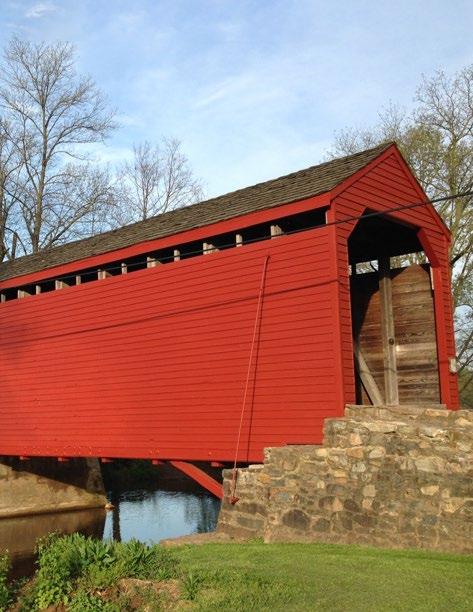
Summer/Fall 2025
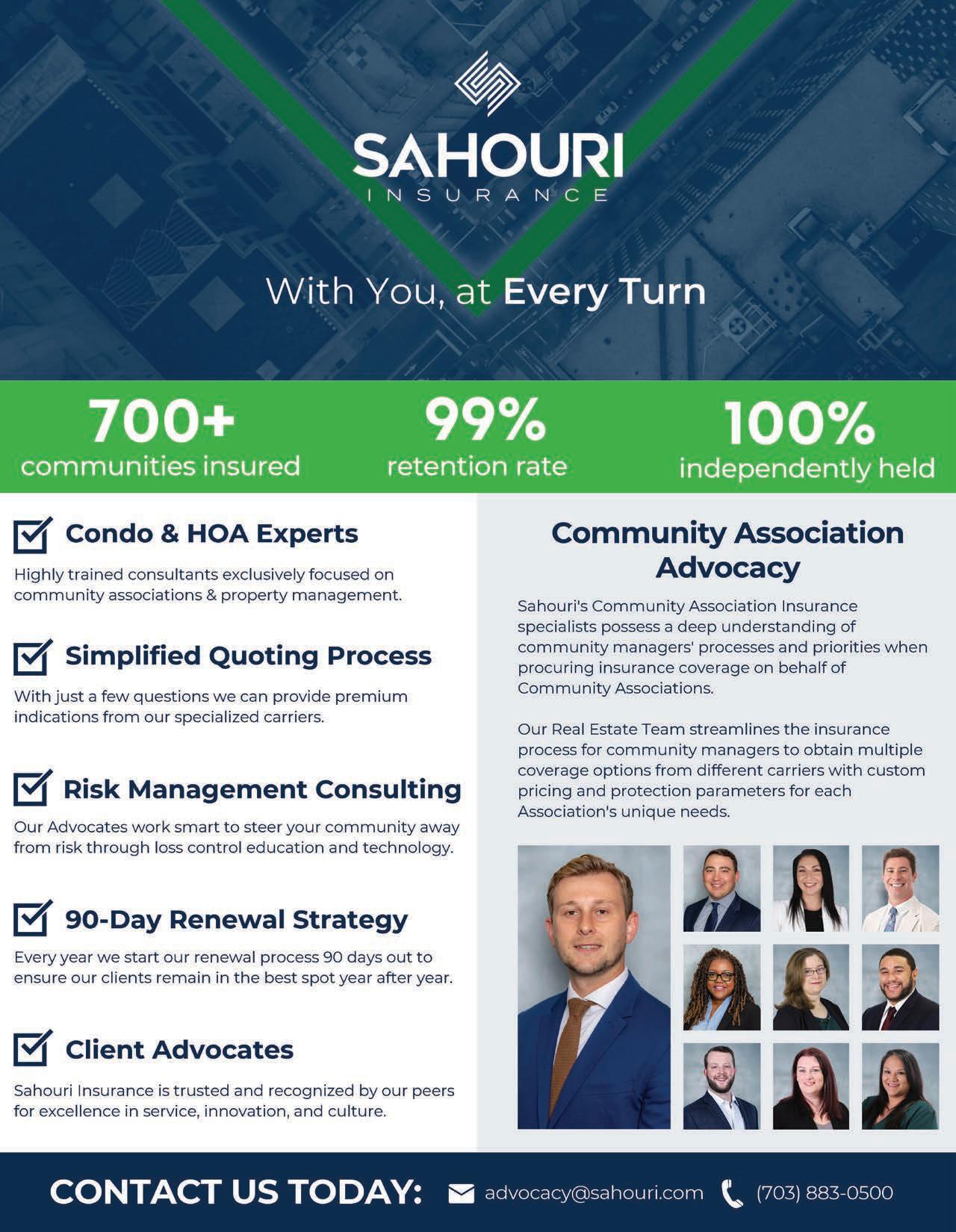


Summer/Fall 2025

Valerie Lykins, Executive Director
Angela Marsh, Marketing and Events Manager
Mahogani Brevett, Administrative Specialist PO Box 6838, Columbia, MD 21045
Office Line: 410-348-1534 • Membership Line: 410-505-8746
Office: contact@caimdches.org • Membership: membership@caimdches.org www.caimdches.org
President Gary Saylor
Atlantic Maintenance Group
Vice-President Cynthia McKoin
Potomac Ridge Condominium, Inc.
Secretary Jennifer Melson, CMCA, AMS
Premier Community Association Management
Treasurer Michelle Jones, CMCA, AMS, PCAM, LSM Lake Linganore Association
James Anderson, PE, Becht Engineering BT
Rebecca Clemson-Petrik, CMCA, AMS, PCAM, FirstService Residential
Hillary Collins, Esq., Rees Broome, PC
B.K. Swartwood, CMCA, AMS, PCAM, Montego Bay Civic Association
COMMITTEE CHAIRS & VICE CHAIRS
Communications Adam Smith, Chair
Level Green Landscaping
Vince Scarfo, CMCA, Vice-Chair
Clear: Restoration and PreDisaster Consulting
Delmarva Lisa Meck, CMCA, AMS, PCAM, Chair
Carl M. Freeman Companies
Stephan Kaganzev, CMCA, AMS, PCAM, Vice-Chair
FirstService Residential
Education

EXPO
Golf
Staci M. Gelfound, CMCA, AMS, PCAM, Chair
WPM Real Estate Management, AAMC
Beth Brittingham, PCAM, Vice-Chair Alliance Association Bank
Ellen Throop, Esq., Chair
Rees Broome, PC.
Dani Bressler, CAS, EBP, Vice-Chair Toepfer Construction Co., Inc.
Chase Hudson, CIRMS, CISR, EBP, Chair Sahouri Insurance
T.J. Socks, Vice-Chair
Becht Engineering BT
Legislative Karen Fooks, CMCA, AMS, PCAM, Chair Community Management Corporation/Associa
Renee Dubois, Vice-Chair Village of River Hill
Magazine Jedd Narsavage, LEED AP, Chair GreenSweep, LLC
Dawn Lewis, CMCA, AMS, Vice-Chair Property Management People, Inc.
Membership Beth Bencivenni, Chair Engagement RestoreCore
Don Plank, PCAM, Vice-Chair Pinnacle Financial Partners
Social
Eddie Ramos, Chair Atlantic Maintenance Group
Ashley Zayas, CMCA, AMS, Vice-Chair Tidewater Property Management
When storms roll across the plains move through it quickly and emerge stronger on the other side.
As I step into the role of President of the Chesapeake Region Chapter CAI, I want to begin by expressing my deepest gratitude to each and every one of you. This chapter thrives because of your unwavering dedication, passion, and commitment to our shared mission. It is truly an honor to serve as your President, and I am incredibly excited for all that we will accomplish together.
Our recent Golf Outing at Norbeck Country Club was nothing short of spectacular. The camaraderie, the laughter, the friendly competition—it reminded me of the strong sense of community that makes this chapter so special. Thank you to everyone who participated, and especially to those who worked so hard behind the scenes to make the day such a memorable success.
And what an incredible time we had at the Crab Feast at Kurtz’s Beach! From the beautiful setting to the unbeatable food and friendship, it was a perfect celebration of summer and the bonds we continue to build. I want to extend a heartfelt thank you to all who helped plan, organize, and attend—your efforts did not go unnoticed.
As we look ahead, I want to leave you with a thought that resonates deeply with me: Be a bison. When storms roll across the plains, most animals run away, prolonging their time in the turmoil. But the bison faces the storm head-on, moving through it quickly and emerging stronger on the other side. As a Chapter—and as individuals—I know we will continue to face every challenge and opportunity with that same strength, courage, and forward momentum.
With gratitude and anticipation,
Gary Saylor
Gary Saylor
President, CAI Chesapeake Chapter President, Atlantic Maintenance Group



Ms. Kerry Angelos
Mrs. Susan Awalt
Ms. Patricia Drago
Senators Homeowners Association, Inc.
Montego Bay Civic Association
Shannon Backus
Legum & Norman
Mr. Steve Bellwood
Bay Crossing Homeowners Association Inc.
Mrs. Kelly Benton
Montego Bay Civic Association
Mr. Donny Bradshaw
Montego Bay Civic Association
Gary Brager 2
700/2800 Stone Cliff Condominium
Mr. George Brown
Highpointe Condominiums
Mrs. Kathleen Burns
Ocean Hideaway
Mr. Jeff Busch
The Cove Creek Club
Jessica Carpenter
FirstService Residential Delaware
Amar Chattu
Fairways at Turf Valley Neighborhood Association, Inc.
Ms. Lorena-Belle
Christian River Run Condominium I
Mrs. Monica Cofiell
Montego Bay Civic Association
Billing Contact
2700/2800 Stone Cliff Condominium
Kathy jo Corea
Legum & Norman
Mr. Max Crispell
Millennial Pool Management
Mr. Mitchell Daniels
Mr. William Dimondi
Canal Corkran Homeowners Association
Mr. Chris DiPaolo
Montego Bay Civic Association
Mr. Mark DiPinto
GetQuorum
Kim Dixson
River Run Condominium I
Maria Epps
Greenbrook Estates Homeowners Association
Sharon Featherstonell
Sea Gate Condominium
Tara Finerty
Legum & Norman
Mr. Chuck
Gladstone Ocean Hideaway
Daniel Grady
Fairways at Turf Valley Neighborhood Association, Inc.
Mr. Bill Graham
River Run Condominium I
Allison Hayden
Stoneridge Condominium
Ms. Evelyn Helvey
River Run Condominium I
Mr. Tom Holzer
Marsh Farm Estates
Mr. Christopher Hoolehan
Governors Condominium Association
Mr. Mike Inman
Bay Crossing Homeowners Association Inc.
Mr. Bob Jackey
Bay Crossing Homeowners Association Inc.
Mrs. Teasa Johnson
Yvonne Jung
Ocean Hideaway
Ronald Ketner
Waverly Woods West HOA
Michael Kinhart
River Run Condominium I
Sharonda Knight
Legum & Norman
Mrs. Maryann Kutz
Montego Bay Civic Association
Linette Lacy
Caroline Laufer
Stoneridge Condominium
Mr. Steve Leven
2700/2800 Stone Cliff Condominium
Steven Levin
Governors Condominium Association
Kathy Lindstrom
Baymont Farms Homeowners Association
Ms. Scarlett Loewe
Dulaney Towers Maintenance Corporation
Ms. Nia Louloudes
Montego Bay Civic Association
Ms. Rhoda Mancuso
American Community Management
Chris Maus
FiveCircle Property Management
Carrie McCubbin
MRA Property Management, Inc.
Melva McKenzie
Stoneridge Condominium
Ms. Eileena Miley
Governors Condominium Association
Daniel Miller
River Run Condominium I
Mr. Jim Mohney
Bay Crossing Homeowners Association Inc.
Mr. Nick Newman
Newman Certified Public Accountant PC
Ale Nitin
Fairways at Turf Valley Neighborhood Association, Inc.
Mr. Bart O’Brien
Montego Bay Civic Association
Jan Perriens Snowden
Overlook Community Association
Anne Postich
Focus Telecommunications
Raj Razdan
2700/2800 Stone Cliff Condominium
Mr. David Rhoten
Sea Gate Condominium
Ms. Nancy Rouse
Villages at Herring Creek
Rory Russell
2700/2800 Stone Cliff Condominium
Stuart Sagal
2700/2800 Stone Cliff Condominium

Tracy Santamaria
MRA Property Management, Inc.
Purushotam Shrestha
Eva Mar Homeowners Association
Ms. Lynne Southmayd
Governors Condominium Association
Vicki Stoltz
River Run Condominium I
Ms. Robin Storey
First Century Bank
Ms. Maria Suls
English Run Homeowners Association
Mr. Mark Swanlond
The Cove Creek Club
Sam Taylor
2700/2800 Stone Cliff Condominium
Ms. Stephanie Thomopoulos
Ocean Hideaway
Nancy Thumma
Legum & Norman
Miss Roxie Tingle
Legum & Norman
Zachary Towers
Ruff Roofers
Beatrice Tripps
2700/2800 Stone Cliff Condominium
Mr. Todd Unger
Sea Gate Condominium
Ava Vansickler
Professional Community Management
Mrs. Kristin Walbert
Tecta America East, LLC.
Sudhir Wanmali Kendall
Overlook Condominium
Mr. Stuart Wilkinson
PropFusion
Theresa Wilson Legum & Norman
Catie Windsor
SVN Miller Commercial Real Estate



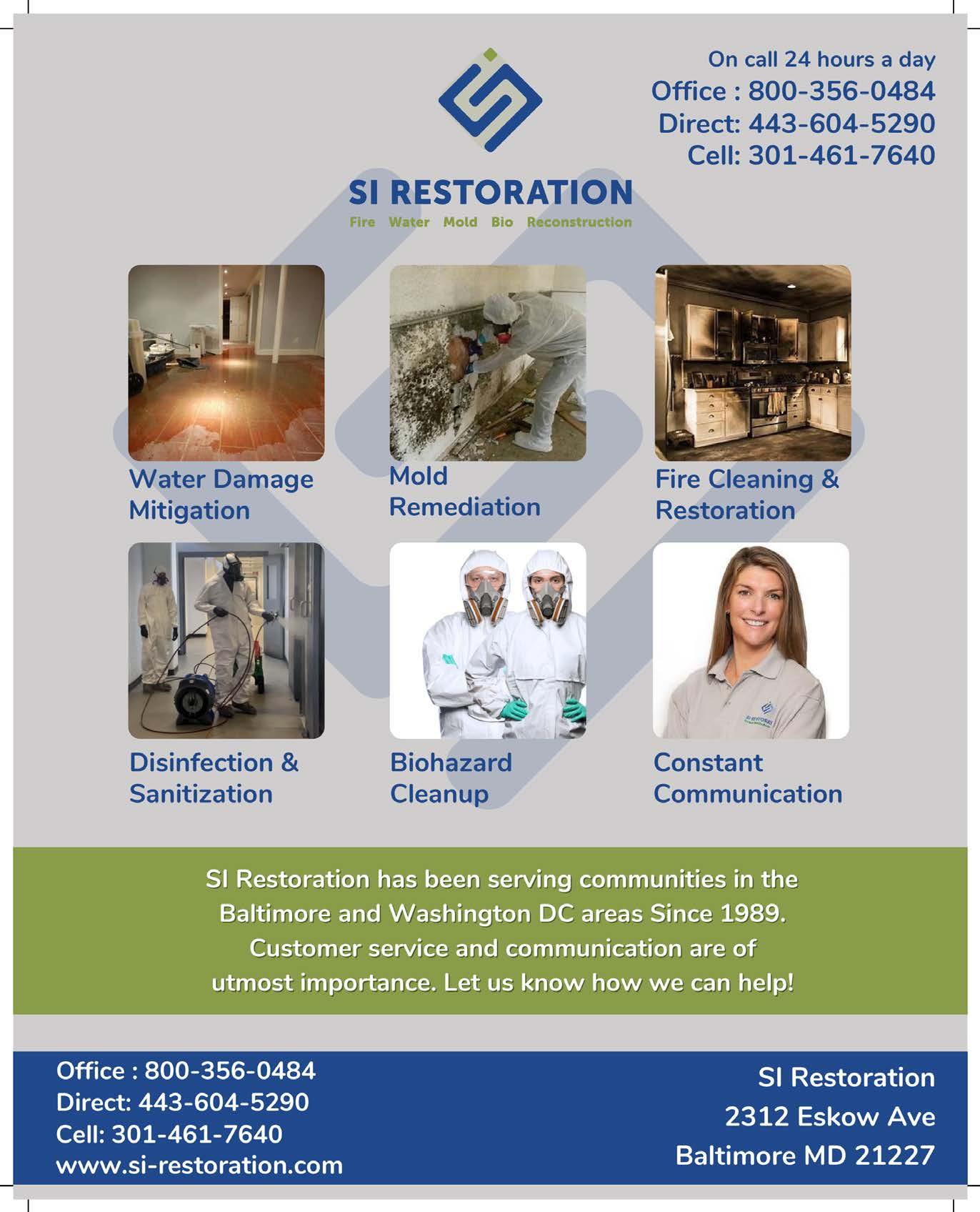
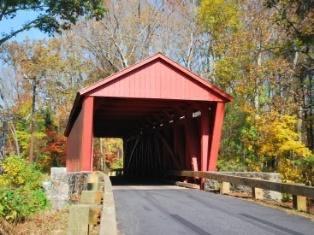
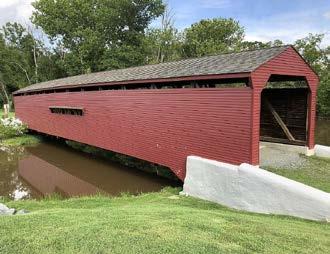
Thomas F. Forsyth built the 99-foot Burr truss bridge in 1865, connecting the mill towns of Franklinville and Jerusalem Mill. The bridge was built to facilitate travel between the cotton mills of Jericho, a spade factory, and wrought iron works in Franklinville, and the flour mills and blacksmith shops in Jerusalem. The Jericho Covered Bridge is an example of the Burr arch through truss design, known for its strength and stability. It’s one of the few remaining examples of covered bridges in Maryland and is listed on the National Register of Historic Places.
The bridge was built in 1859 and 1860 by Joseph G. Johnson, a local bridge wright, to span North East Creek. It was erected near Samuel Gilpin’s mills and dam. It’s a Burr truss bridge, a common design for covered bridges in the 19th century.
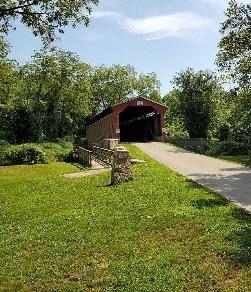
The bridge is a well-preserved example of its type and is one of only six surviving covered bridges in Maryland.
The Foxcatcher Farm Covered Bridge, located in Cecil County, Maryland, has a rich history. Originally named Strahorn’s Mill Bridge, it was built in 1860 by Ferdinand Wood. The bridge was later renamed after William duPont Jr. purchased the property in 1927 and established his Foxcatcher Farm estate. The bridge has undergone multiple repairs, including a significant reconstruction in 1992 and a complete rehabilitation in 2009-2010. It is now a Maryland Historic Civil Engineering Landmark.
Bridge is closed to motor traffic. Only pedestrians, horses and cyclists allowed through bridge. There is a parking area near the bridge.

The Utica Mills Covered Bridge was originally part of a two-span, 250-foot long bridge called the Devilbiss Road Covered Bridge, spanning the Monocacy River. The Johnstown Flood of 1889 washed away most of the Devilbiss Road bridge. The salvaged timber from the destroyed bridge was used to build a 101-foot long Burr Arch design bridge, which is now the Utica Mills Covered Bridge. It now spans Fishing Creek on Utica Road, just off Frederick Road in Utica, Maryland.
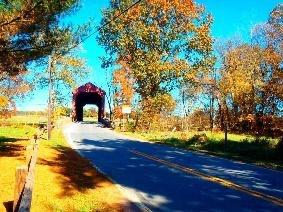
Loys Station Covered Bridge was originally built in 1848. Between 1929 and 1930 the bridge was reinforced with a concrete pier and steel beams. The bridge gets its name from a Western Maryland Railroad station that stopped nearby the bridge in Loys. In 1978 the bridge was added to the National Register of Historic Places. In 1991 the bridge was burned down by an arsonist who was trying to fraudulently collect insurance money. The bridge took three years and $300,000 to rebuild and was rebuilt to match the bridge as it was in 1930 after having been reinforced.
With only 2 remaining bridges, the small state of Delaware never had very many covered bridges, and the few historic covered bridges the state had were all located in the northernmost county of New Castle.
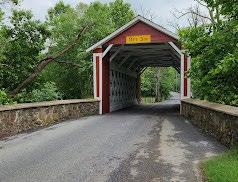

Ashland Covered Bridge also known as Ashland Bridge or Barley Mill Road Covered Bridge, is a covered bridge over Red Clay Creek on Barley Mill Road (near the junction of Brackenville Road) in Ashland in New Castle County, Delaware. It was added to the National Register of Historic Places in 1973.
Wooddale Bridge is a covered bridge over Red Clay Creek at Wooddale in New Castle County, Delaware. It is one of three covered bridges in the state of Delaware along with the very similar Ashland Covered Bridge and the Smith Bridge. It and the Ashland bridge remain, of the thirteen bridges along the Red Clay Creek that were marked on an 1868 map.
Written by: Ruth Harlan, Carroll Vista Community Association from these sources http://www.mdcoveredbridges.com and http://www.onlyinyourstate.com

For more information and to visit the list of courses offered in 2025 visit here: www.caionline.org/LearningCenter/Education-for-Managers/ Pages/default.aspx
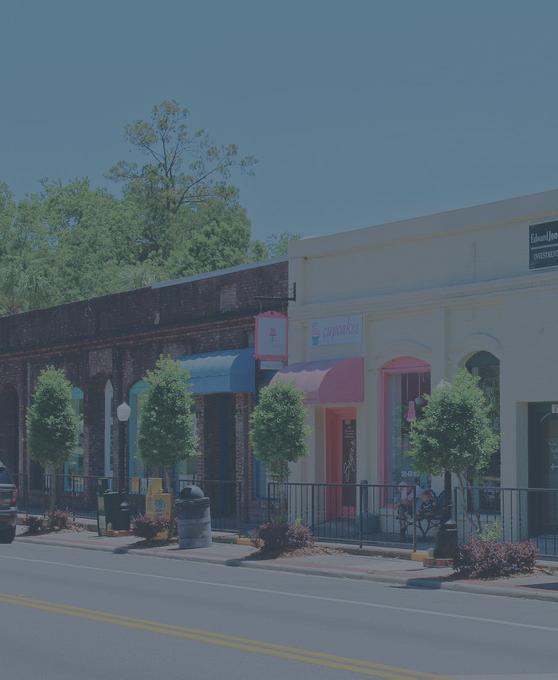











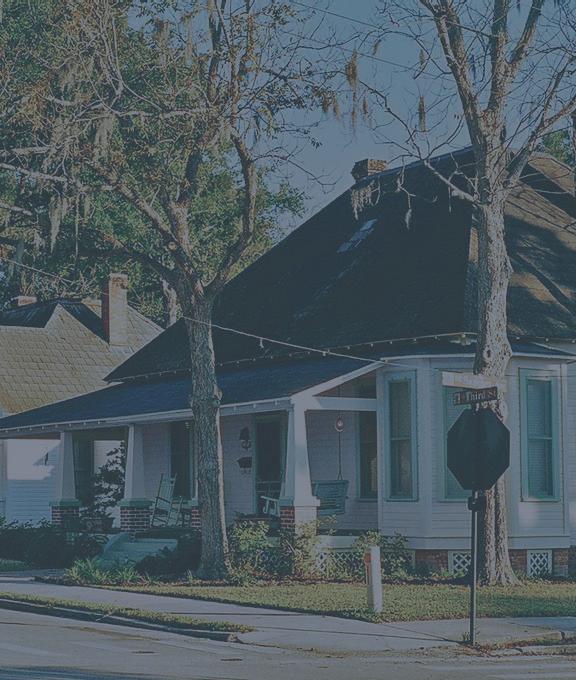
Homeowner associations and community associations face an abundance of specialized legal challenges. Our experienced Community Associations attorneys have worked with hundreds of condominiums, homeowners associations, and housing cooperatives throughout the Mid-Atlantic region and have gained a deep under standing of the unique issues you deal with every day. Rely on us for comprehensive legal services, creative problem-solving, and a common-sense approach to keep your association running smoothly.

Recent changes to Maryland law, which go into effect on October 1, 2025, will provide relief to many community associations that are having financial difficulties meeting reserve funding requirements. Many associations faced challenges in funding reserves after legislation went into effect in 2022 that mandated associations to perform regular reserve studies and fund the recommended reserves. The legislation expanded on requirements that were initially limited to Prince George’s and Montgomery counties and made them state-wide. Historically, many associations underfunded their reserves and with the passing of the legislation in 2022, had to significantly raise dues, levy special assessments and/or take out loans to meet the new reserve funding requirements. Now, an association’s board of directors will be able to determine, by a two-thirds vote, that a financial hardship exists. If a hardship is declared by the board, the association may deviate from reserve funding requirements for one fiscal year, which can be extended for another year with a subsequent vote. The association must make “good faith efforts” to resolve the financial hardship and may work with a reserve specialist to come up with a funding plan to resume full reserve funding. However, the new legislation will provide some breathing room for those associations that are struggling to catch up with Maryland’s reserve funding requirements.
Community associations that are responsible for the repair and replacement of common areas or common elements that exceed $10,000 are required to have an initial reserve study completed at least 30 days prior to the election meeting that transfers control of the board of directors of the association from the developer to the homeowners. The association must have the reserve study updated every 5 years thereafter. A reserve study looks at the normal useful life and the estimated remaining useful life of each common area or common element component, the estimated cost of repair or replacement of each component and then determines the estimated annual amount that should be placed in reserves to accomplish the future repair and replacement of such components.
The reserve study must be performed by a professional reserve analyst, reserve specialist, engineer or architect who has prepared at least 30 reserve studies within the prior 3 calendar years. The association in consultation with this person must develop a funding plan to determine how to fund the reserves recommended in the reserve study. Reserves provided for in the association’s annual budget should be the funding amount recommended in the most recent reserve study or updated reserve study. However, if the board of directors determines that there is a financial hardship, the association may deviate from the funding requirements for one fiscal year.
Notwithstanding a hardship determination, the association must still fund adequate amounts for any repairs or replacements of components that are necessary for the health, safety and well-being of the residents, that ensure the structural integrity of structural components or that provide essential functions, such as plumbing, sewer, electricity, heating, cooling, or any other essential or critical purpose, as determined by the board. The association’s board of directors must review progress toward compliance with the funding plan at each annual meeting of the homeowners, and also maintain detailed documentation of its good faith efforts and make such documentation available to the homeowners for examination. The board may renew a financial hardship determination and extend the period that the association may deviate from the reserve funding requirement by an additional fiscal year.
Ultimately, an association’s board of directors has a fiduciary duty and a legal duty to maintain, repair and replace common area and common element components and to adequately fund reserves for their repair and replacement. The board should work closely with its reserve specialist, legal counsel and management to ensure that it is fulfilling these responsibilities.
Written by: Judyann Lee, Esq. McMillan Metro Faerber P.C. jlee@mcmillanmetro.com
Atlantic Maintenance Group
Becht Engineering BT, Inc.
Hann & Hann Construction Services
Kris Konstruction Roofing Professionals
MillerDodson Associates, Inc.
Minkoff Company
Nagle & Zaller, P.C.
North Arundel Contracting, Inc.
Park Heights Roofing
Pinnacle Financial Partners
Prestige Tree Experts
Rees Broome, PC
Sahouri Insurance
The Falcon Group Engineers, Architects & Reserve Specialists
Tidewater Property Management, Inc., AAMC
WPM Real Estate Management
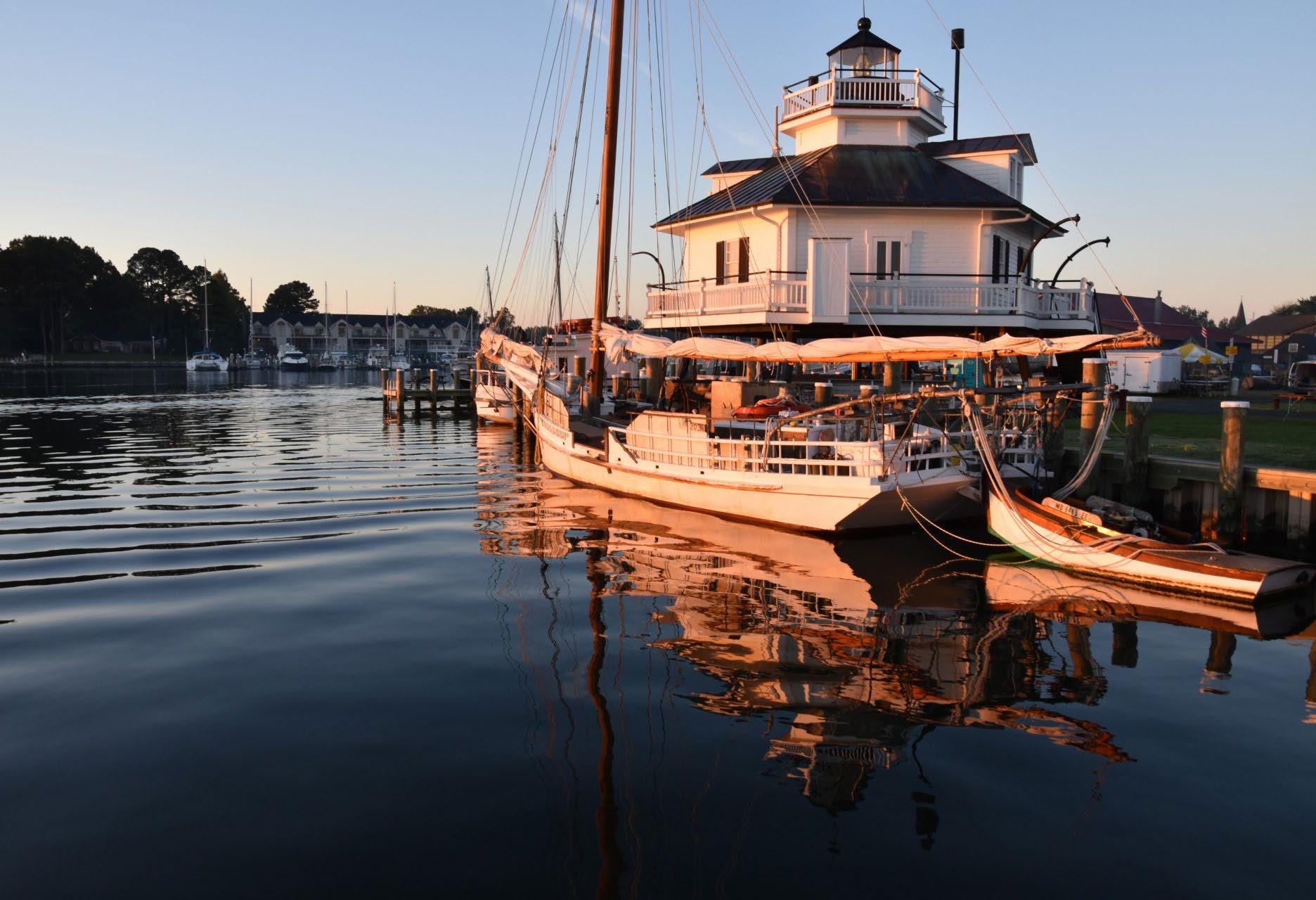
Clear: Restoration and PreDisaster Consulting
Community Association Underwriters of America
Davis, Agnor, Rapaport & Skalny
Duradek MidAtlantic
EJF Real Estate Services
Palmer Brothers Painting & General Contracting
SI Restoration
2025 Gold Sponsors
Condominium Venture, Inc.
D.H. Bader Management, Inc.
FirstService Residential
Pacific Premier Bank
Structural Restoration Services, Inc
"Alexa, Run My
WHY COMMUNITY ASSOCIATION MANAGEMENT DESERVES BETTER THAN FAX MACHINES AND STICKY NOTES
In today’s fast-paced digital landscape, technology often blurs the lines between urgency and importance, leading to constant connectivity and heightened expectations. This seminar delves into the nuances of managing digital communication, leveraging artificial intelligence (AI) responsibly, and fortifying cybersecurity measures to enhance productivity and protect sensitive information.
Friday, November 14, 2025
8:00 am – 2:45 pm
Rehoboth Beach Convention Center
229 Rehoboth Ave • Rehoboth Beach, DE 19971
If you need hotel accommodations, a group rate room block has been arranged at the Coast Rehoboth Beach, a Tapestry Collection by Hilton Hotel. Guests may visit the link below to make their reservations for November 13, 2025
https://group.tapestrycollection.com/jcwoss
The group rate is $129/night for a standard room type. The group code for the room block is CHES. The cut-off date to book rooms is October 16, 2025. After that date, the group rate is not guaranteed at the hotel.
BOOTHS AND SPONSORSHIPS are now available!
Booths: $750 – includes two tickets to Happy Hour on Thursday evening at Sirocco Food & Drink located at the Coast Rehoboth Beach. Space is limited! Reserve your Booth or Sponsorship today!
Exhibitor Booths
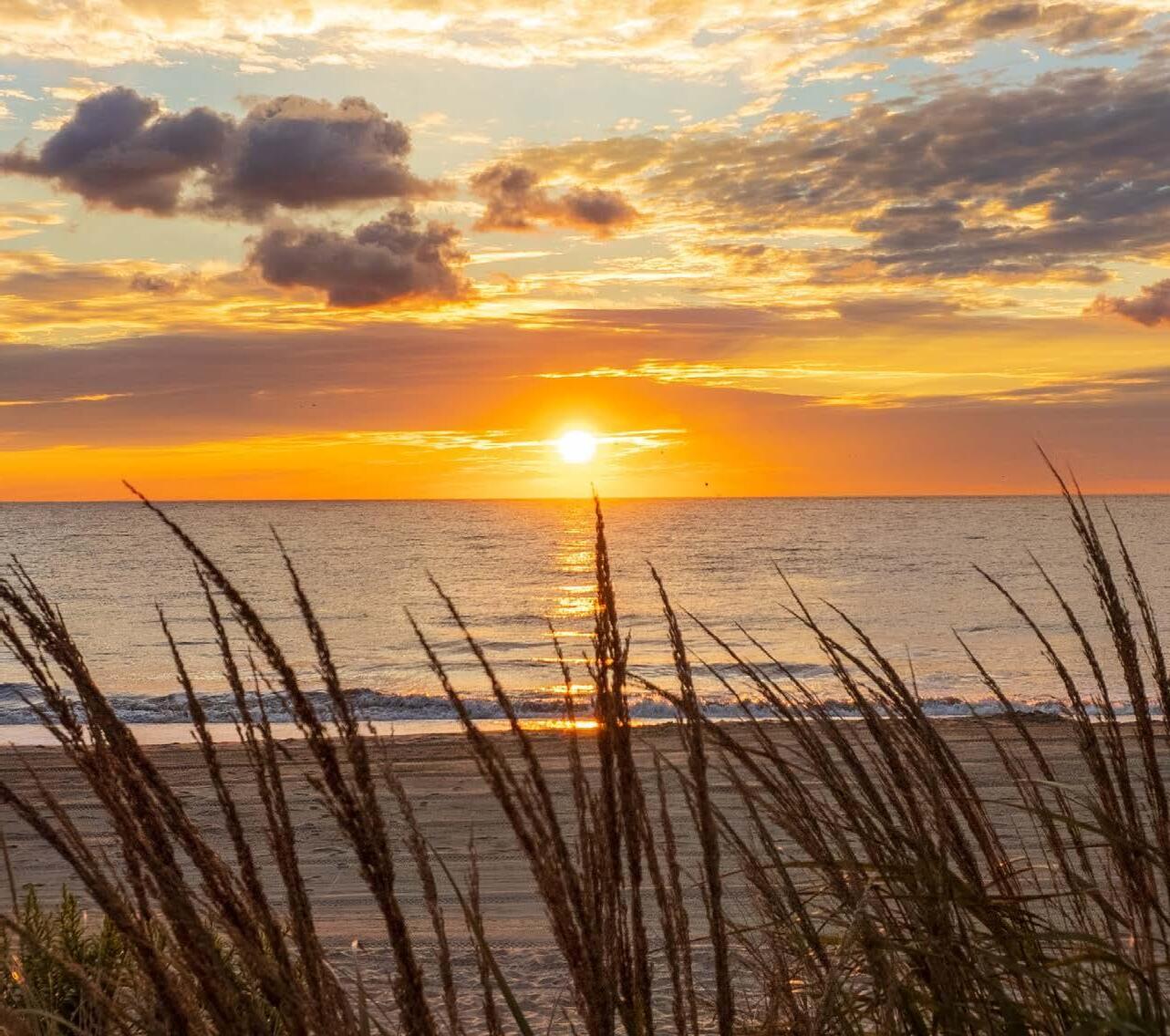
Sponsorships

Thursday 1:00 pm – 3:00 pm Exhibitor Set-up 4:00 pm – 6:00 pm Happy Hour - at Sirocco Food & Drink Friday 6:30 am – 7:45 am Exhibitor Set-up
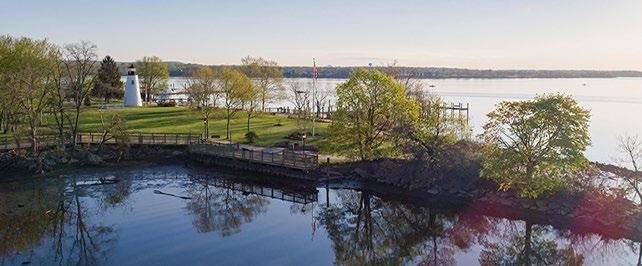
Welcome to Bulle Rock. Set in Havre de Grace, Maryland, and named after the first Thoroughbred horse in America, this 1,400+ home (and growing) community blends the professionalism of Large-Scale HOA management with the heart of a small town. With future growth expected to exceed 2,000 homes, Bulle Rock is already one of the Mid-Atlantic’s most active and wellgoverned master-planned communities.
It’s not just the 40,000-square-foot Residents’ Club or the full calendar of events that make Bulle Rock stand out; it’s the culture. Residents volunteer, participate, and take pride in their surroundings. The community supports dozens of clubs, provides access-controlled security 24/7, and maintains a strong financial position through deliberate reserve planning and capital investment.
Every month, hundreds of residents take part in events planned by an in-house Lifestyle team supported by committee volunteers. Programming is diverse, inclusive, and thoughtfully curated—featuring cultural celebrations,
blood drives, wine tastings, fitness classes, children’s crafts, live music, comedy nights, and intergenerational holiday gatherings.
Clubs and gatherings span every interest:
• ROMEOs (Retired Old Men Eating Out)
• Juliets (Just Us Ladies Interested in Eating Together)
• Bingo (governed under new gaming regulations)
• Book Club, Sketching Salon, Bocce, Mahjongg, Bunco
• Veterans Meet-Up, Multicultural Movie Night, and more
Monthly event participation exceeds 500 residents, with lifestyle programming tailored to every season and demographic.
One flagship program, Flags for Military Heroes, has gained special recognition. Managed entirely by resident volunteers, American flags line the streets of Bulle Rock on Memorial Day, Independence Day, September 11th, and Veterans Day. Photos of this inspiring display are available online.

Professionalism Behind the Scenes
• Managed by FirstService Residential, with full-time onsite staff
• The Board of Directors is composed of homeowner and developerappointed members
• Committee oversight includes Buildings & Grounds, Budget & Finance, Pool & Fitness, Covenants, Lifestyle, Editorial, Design Review and Safety & Security
• Recent capital projects include rooftop HVAC replacement, centralized playground redesign, Extensive Residents’ Club Sundeck roof and stone façade replacement, and a long-range stormwater maintenance plan
• Strong reserve contributions backed by updated Reserve Study
• Annual budget process includes a detailed review and open community discussion
Notable Events and Testimonials
2024–2025 events include:
• Bulle Rock’s 20th Anniversary Celebration (324 attendees)
• Holiday Trunk or Treat, Teen Pool Parties, Encore de Mardi Gras, and Veterans Appreciation
• Community-led drives: food pantry, Red Cross blood donations, and school supply support for Harford County educators
“I’ve lived here 18 years. Every month, there’s something new. The Lifestyle team brings it all together—fun, inclusive, and always well run.” ~CS, Resident
“I’m a 72-year-old widower who moved here specifically because I wanted to live in a place that offered activities. I’m very happy with the variety offered and how welcoming everyone is.” ~Anonymous, Survey Response
By the Numbers (2024–2025 Highlights)
Metric Value
Club Gatherings
Monthly Events
Monthly Attendance
Annual Rental Revenue (YTD)
Social Media Followers
Reserve Contributions
Final Word
115+
Average of 8–12
300–700 residents
$40,000+
946 (Facebook) / 591 (Instagram)
$730,000 in 2025
At Bulle Rock, service isn’t just something that happens behind a front desk; it’s how neighbors treat each other. Backed by experienced management, strong business partner partnerships, and a vibrant social fabric, Bulle Rock remains not only a premier Large-Scale community but one that feels like home.
Written by:
Chris Petrik (CMCA, AMS, PCAM), FirstService Residential (Bulle Rock Community Association); chris.petrik@fsresidential.com
Rhiannon Blankenship, FirstService Residential (Bulle Rock Lifestyle Director); Rhiannon.Blankenship@fsresidential.com
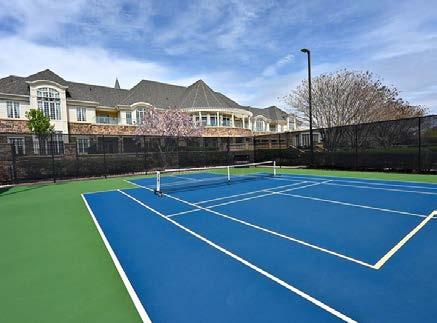
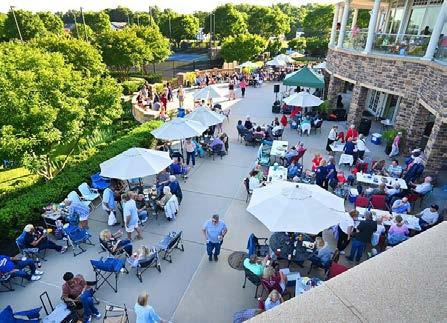
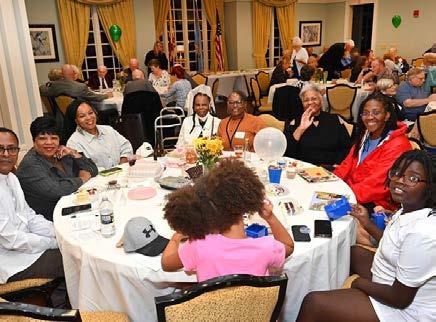
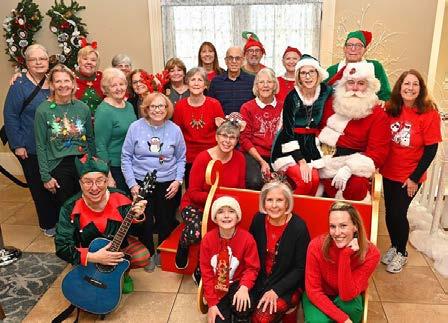
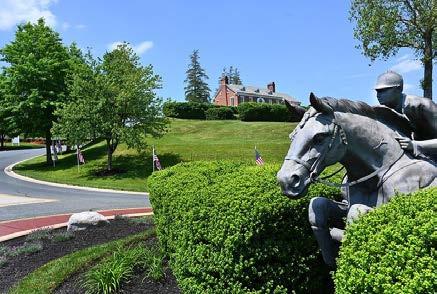



Monday, October 6, 2025
“Before, During, and After: Emergency Operations for Community Associations” is designed for owners, board members and community managers responsible for guiding their communities through crisis events. This presentation brings together the critical perspectives of insurance experts, community managers, and disaster restoration professionals to outline the full scope of emergency operations.
Attendees will explore what effective preparedness looks like before disaster strikes—focusing on insurance coverage, vendor partnerships, and communication planning; how to respond during an event—emphasizing safety, leadership, and coordination; and how to manage the critical after phase—navigating claims, repairs, and recovery with minimal disruption. Through real-life scenarios and industry best practices, this session offers a clear, step-by-step framework for protecting people, property, and peace of mind.
6:00 – 7:45 am Exhibitor Set-up
8:00 – 9:30 am Breakfast/Registration/ Morning Expo
9:45 – 10:00 am Welcome/Introductions
10:00 – 12:00 pm Morning Session Class“Plan.Prepare.Prevail.”
12:00 – 1:45 pm Lunch/Expo
2:00 – 4:00 pm Afternoon Session Class“Thrive and Survive”
Maryland LIVE Casino, Hanover, MD
Morning Session - “Plan.Prepare.Prevail.”
Coordinator – Jonathan Rosenberg, CMCA, AMS, PCAM, WPM Real Estate Management
Speakers – Christa M. Brady, AMS, PCAM, CIRMS, USI Insurance Services LLC; Mike Mangum, WPM Real Estate Management; Greg Minkoff, Minkoff Company
Plan. Prepare. Prevail. emphasizes the importance of disaster preparedness for condominium and homeowner associations. It recommends reviewing insurance coverage with professionals, organizing essential documents and manuals, and developing clear communication and disaster management plans. Associations should work with contractors, create emergency “crash kits,” and prepare post-disaster recovery strategies. The ultimate goal is to protect residents, staff, and property while ensuring a swift return to normal operations. The panel aims to share insights to support effective planning and preparedness.
Afternoon Session - “Thrive and Survive”
Coordinator – Dani Bressler, CAS, EBP., Toepfer Construction Co., Inc.
Speakers – Chase Hudson, CIRMS, CISR, EBP, Sahouri Insurance; Chris Petrik, CMCA, AMS, PCAM, Bulle Rock Community Association; Sharon Toepfer Burns, Toepfer Construction Co., Inc.
When an event occurs, mitigation must happen promptly to avoid any further damage as well as to maintain safety. At this time, communication with all parties involved is the top priority. This communication will not only include management and the restoration contractor but will also include your insurance company. After the emergency service is complete and restoration can begin, communication will also be key. Setting expectations early is vital to a smooth restoration process. We will highlight specific tools, processes, and leadership strategies that helped stabilize the community during crisis and show how preparedness and post-crisis upgrades can reduce risk in the future.
All attendees must sign the Chapter’s suitcasing policy on their registration form
EARLYBIRDRATESARE AVAILABLE!Don’tMissOut!





As part of the Climate Solutions Now Act of 2022, Maryland joined numerous administrations in adopting Building Energy Performance Standards (BEPS), with the goal of increasing energy efficiency and fighting climate change. Beginning in 2025, multifamily residential, public, and commercial properties over 35,000 square feet are required to complete energy audits, which are tracked and disclosed annually. With the goal of covered buildings achieving net-zero direct greenhouse gas emissions by 2040, buildings must meet long-term greenhouse gas emission reduction performance standards. To meet these standards, buildings will utilize the guidance provided by energy audits.
Energy audits are defined as “an assessment of the energy needs and efficiency of a building or buildings.” These audits both evaluate the energy efficiency of a building and provide energy conservation measures (ECMs) that show associations the most effective means to accomplish energy savings throughout their property. In essence, energy audits aim to help associations use less energy while functioning at the same level.

In the most basic terms, energy audits are a physical inspection of building components that use energy. There are two levels of energy audits, beginning with a Level I Audit. A Level I Audit is considered a high level preliminary “walk through” audit, providing an overview of the building’s operations and energy use that identifies the most obvious areas of energy insufficiency.
A Level II Audit dives deeper, providing quantitative data analysis of measured costs and annual cost savings breakdowns. This additional analysis, such as return on investment and payback calculations, allows buildings to make decisions on improving energy efficiency. With the ability to assist in decision making, Level II Audits have the benefit of becoming actionable.
In our experience, there are few cases where we would recommend a Level I Audit to a community that must hit interim targets and comply with BEPS. Because Level I Audits only provide qualitative suggestions to lower energy use, they do not provide the full analysis needed to help buildings that need to hit specific targets. In almost all cases, a Level II Audit is required if a building does not meet interim standards or is unaware of where they stand. While each building can decide for themselves which level of audit to commission, we will almost always recommend a Level II Audit for buildings who need to comply with BEPS standards.
Audits provide recommendations for buildings to achieve target deadlines set forth in BEPS legislation, specifically lowering greenhouse gas emissions, which is part of Maryland’s legal requirements. In any location where BEPS are enforced, energy audits are always the first recommended step for buildings to understand where they can improve their energy usage.
Outside of the benefit of legal compliance, implementing the energy conservation measures outlined in an energy audit can provide major cost savings for electricity and gas energy utility bills for both the association common areas and unit owners. Even seemingly small measures such as swapping out faucets and opting for LED light fixtures can save thousands of dollars per year.
Although energy audits may seem intimidating for Associations just beginning to understand energy compliance, the audit inspection process is pain-free and looks similar to other routine home inspection services. During the inspection, the engineer will inspect all property components that are subject to energy demands to evaluate their performance. Because the energy audit examines the energy use of the full building including each individual unit’s energy use, the engineer will need access to a sampling of units to evaluate ownermaintained components such as the age of appliances, thermostat styles, lighting and plumbing fixtures, and any unit-maintained furnaces or water heaters.
The inspection typically takes a few hours, depending on the size of the building, and the audit report will generally be delivered three to four weeks after the inspection. As with any Reserve Advisors service, our engineering team is always available as a resource to review findings and discuss any questions with the board, manager, or homeowners.
For any BEPS program, it’s important to remember that energy use data will always be pulled from the previous 12-month calendar year. This means that energy conservation measures need to be implemented long before the deadline for interim targets. At a minimum, energy saving
measures should be installed over 12 months in advance of deadlines. The sooner a building or association can identify energy conservation measures, the better suited they will be to ensure compliance.
To ensure your building is taking the right steps to meet deadline targets, reviewing the pathway for compliance through commissioning an energy audit is always the best first step. Without an audit in hand, your community will have virtually no way of knowing which steps to take to ensure compliance. If you know your building does not meet compliance requirements, there are a few “no or low-cost” tricks you can implement to get ahead of the curve as shown in the image on the right. Because an airtight building will have huge savings towards energy use, it’s important first and foremost to ensure there are no failed sealants or holes in the building exterior.
As Maryland moves forward with its climate goals under the Climate Solutions Now Act, energy audits have become a cornerstone of compliance with BEPS. These audits not only help multifamily, public, and commercial buildings understand their current energy usage but also provide a clear roadmap for improving efficiency and reducing emissions.
While the process may seem daunting at first, especially for associations new to performance standard targets, a Level II Audit offers the depth and data needed to make informed, cost-effective decisions. Beyond regulatory compliance, the benefits of energy audits extend to long-term savings, improved building performance, and a meaningful contribution to the fight against climate change.
The sooner your building begins the audit process and implements energy conservation measures, the better positioned it will be to meet Maryland’s interim targets beginning in 2030-2034, as well as the 2040 net-zero emissions target. Acting today ensures a more sustainable, efficient, and financially sound tomorrow.

Written by: Michelle Baldry PE, PRA, RS Reserve Advisors mbaldry@reserveadvisors.com
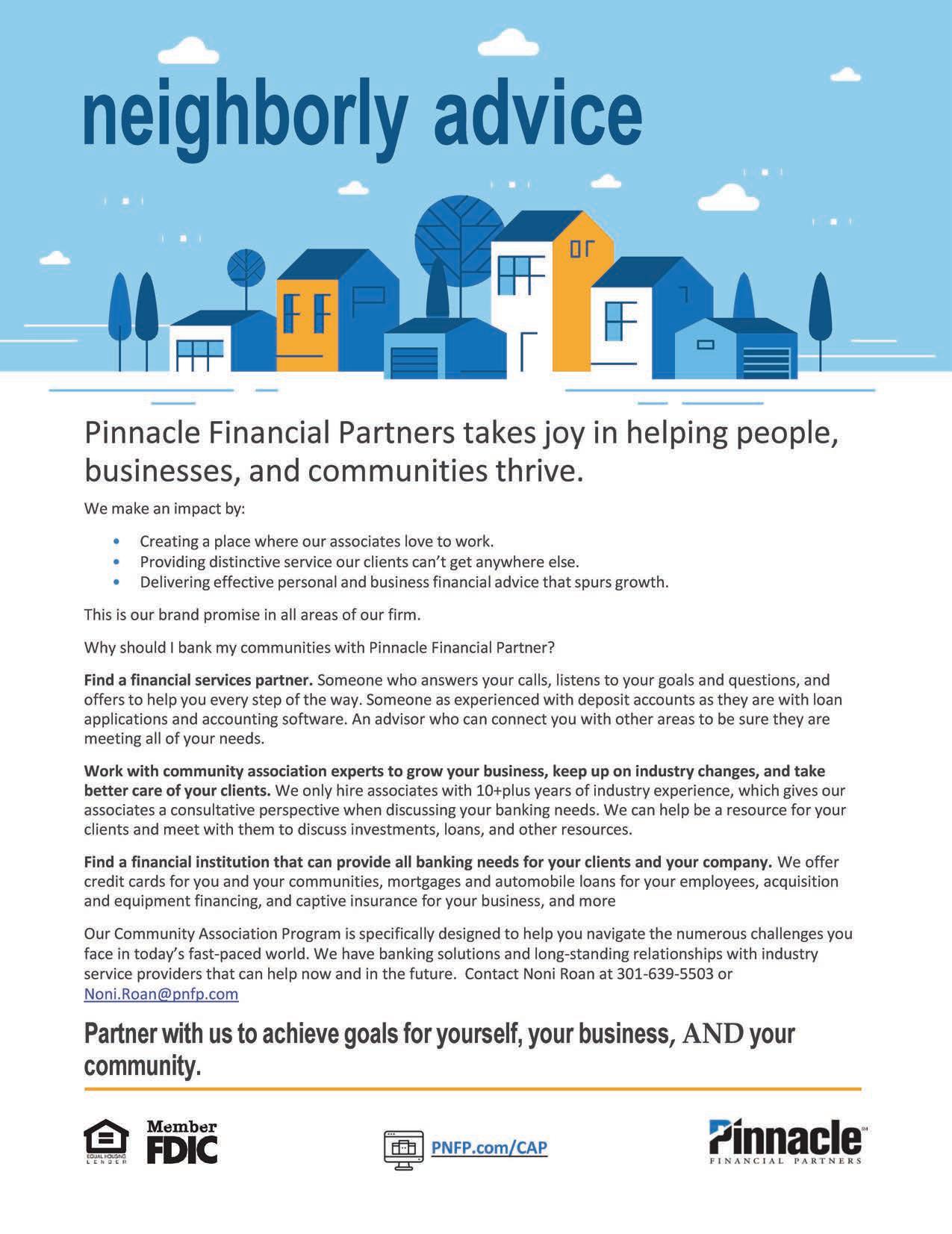
TRC Engineering is proud to announce its recognition by not one, but two major regional utility providers for outstanding achievements in energy efficiency. A trusted mechanical engineering consulting firm serving the MidAtlantic area, TRC Engineering, was recently honored with:
• Pepco’s 2024 Performance Award for Mechanical Efficiency as part of the Energy Savings for Business program
• Washington Gas’s Runner-Up Award for Largest Commercial Prescriptive Energy Savings
These awards reflect TRC Engineering’s commitment to delivering smart, sustainable solutions for condominiums, multi-family and commercial buildings. From HVAC system design to mechanical retrofits and energy audits, the TRC team partners with property owners and managers and Building Engineers to reduce energy use, increase system performance, and improve overall building comfort.
“It’s an honor to be recognized by both Pepco and Washington Gas,” said Charlie Kirk, Principal Member and Senior Mechanical Engineer at TRC. “These awards validate the hard work of our team and our dedication to helping clients meet their energy and sustainability goals.”
With a decades-long presence in the region and deep experience in building systems, TRC continues to lead with integrity, innovation, and impact.
Congratulations to TRC Engineering
We are proud to announce...
...that Bopat Electric has been named Electrical Contractor of the Year for 2025 by Electrical Review Magazine, recognizing our unmatched expertise in NFPA 70E compliance!
On June 25th our Chapter held a webinar regarding Maryland’s Building Energy Performance Stanards (BEPS) to help inform you of the bechmarking requirements that were to be met by October 1, 2025.
We have recently learned of a Complaince Advisory that MDE shared regarding updates, changes and new guidelenes regarding the BEPS program.
You can find all updates here:
TO CONTACT MDE:
• Learn more about BEPS through our website: www.mde. maryland.gov/beps
• Signup for the BEPS email list to receive general updates on the regulation and updated exemption forms when they are available. Visit here: https://public.govdelivery. com/accounts/MDDOE/ signup/43621
• Questions? Email beps.mde@ maryland.gov
Many Thanks to our 2025 Golf Outing Sponsors!
American Pool
Atlantic Maintenance Group
Becht Engineering BT
BoPat Electric
Brightview Landscape
Clean Advantage
Complete Landscaping Service
CWR, Inc.
Exterior Medics
Fellner Legal Services
First Citizens Bank
Four Twelve Roofing
Hann & Hann Construction Services
Hawkins Electric Services
Kolb Electric
Knott Mechanical
Kris Konstruction
MillerDodson Associates, Inc.
Minkoff Company
Nagle & Zaller
North Arundel Contracting
NV Roofing
Palmer Brothers
Park Heights Roofing
Pinnacle Financial Partners
Pro Painting & Contracting
Raine & Son
Rees Broome
Roche Landscaping Services
Ruppert Landscape
Sahouri Insurance
SI Restoration
Standard Paving & Concrete
Structural Restoration Services
The Falcon Group
The Witmer Group
Thomasville Restoration
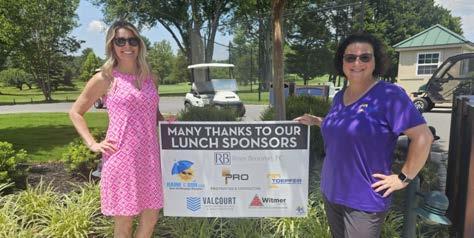
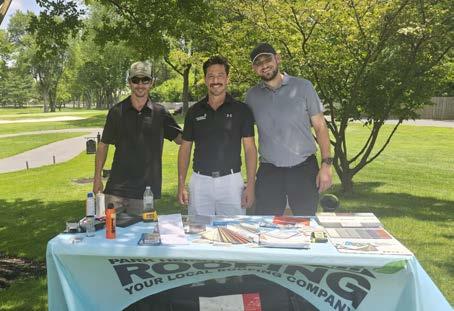
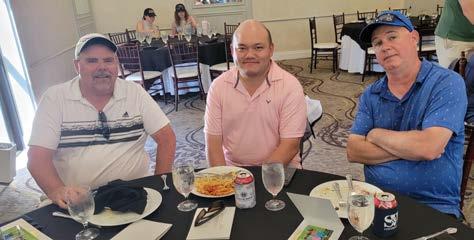


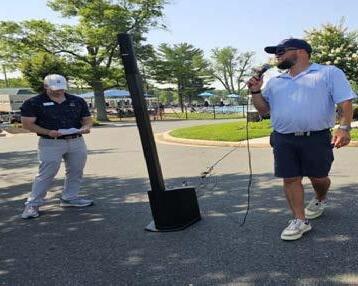
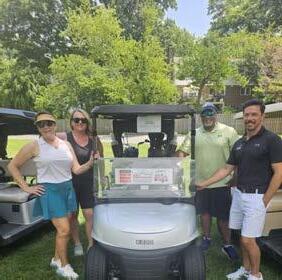

Tidewater Property Management, Inc., AAMC
Toepfer Construction Co., Inc.
Valcourt Exterior Building Services
WPM Real Estate Management


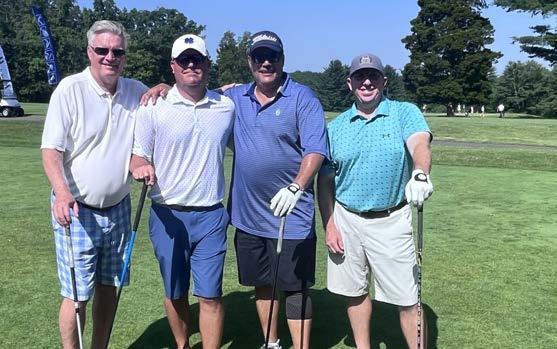
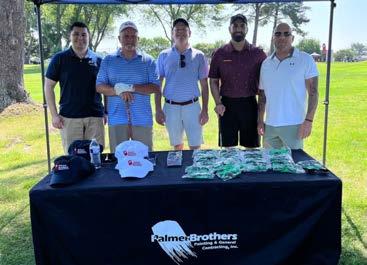
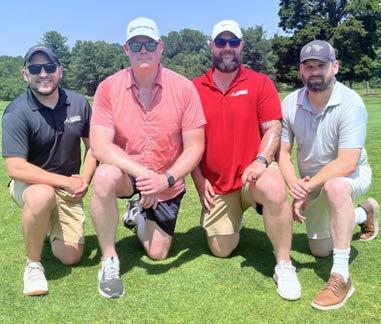
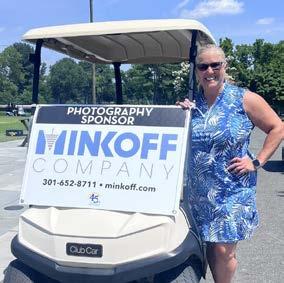
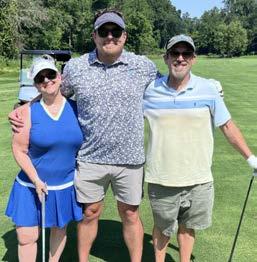
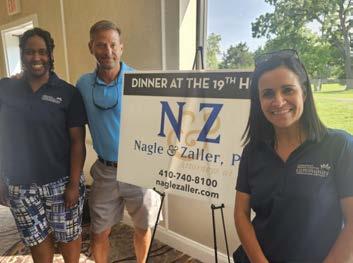
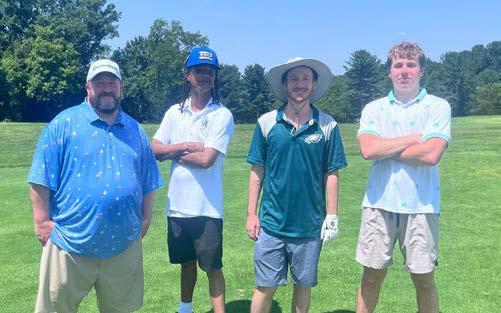
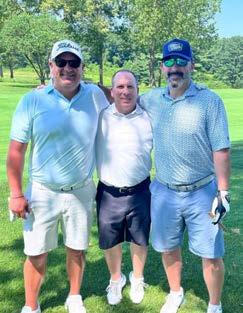
MANY THANKS TO OUR 2025 GOLF COMMITTEE!
Chase Hudson, Chair, Sahouri Insurance
Thomas (T.J.) Socks, Vice-Chair, Becht Engineering BT
Rebecca Clemson-Petrik, Board Liaison, FirstService Residential
Andy Barnes, NV Roofing
Trey Busick, Four Twelve Roofing
Ian Douglas, WHITEFORD
Scott Duke, The Witmer Group
Larry Edmonds, American Pest
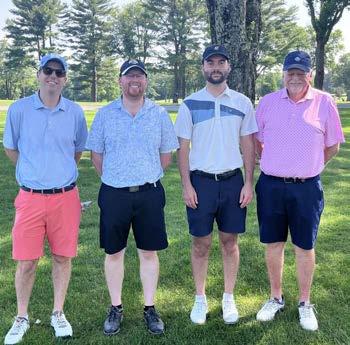

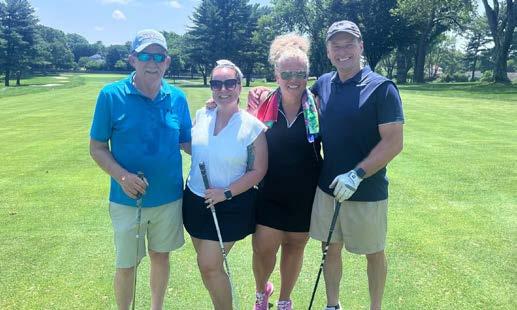
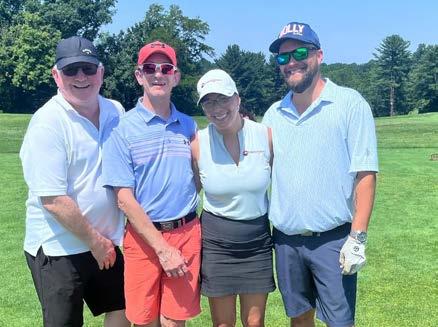
Marty Ehrlich, ClickPay
Jason Kingan, Atlantic Maintenance Group
Michael Locher, On Target Remodeling
Matthew Merckel, Tidewater Property Management
Evan Picciotto, Kris Konstruction Roofing Professionals
Keith Rivers, Atlantic Maintenance Group
Scott Severn, RestoreCore
Linda Sheets, Bopat Electric
Carol Shenk, First Citizens Bank
FLIGHT #1 –
First Place:
Larry Edmonds, Ryan Bates, AJ Glascock, Mike Simpson
Second Place:
Brandon Rose, Tyler Bishop, Joe Wilcher, Michael Daly
FLIGHT #2 –
First Place:
Rick Bowling, Cody Bishop, Matthew Merckel, Tyler Manahan
Second Place:
Tim Hall, Patrick Smith, Billy Jackson
FLIGHT #3 –
First Place:
Scott Severn, Staci Gelfound, Jamie Glassman
Second Place:
TJ Socks, James Anderson, Alan Carrick, Gabriela Torres
Straightest Drive – Men: Chris Schopen
Longest Drive – Women: Kate Cornell
Longest Drive – Men: Hunter Cox
Closest-to-the-Pin – Women: Michele Nadeau
Closest-to-the-Pin – Men: AJ Glascock
Putting Contest: Justin Connelly

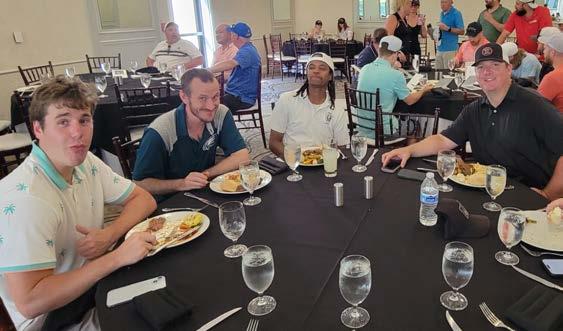
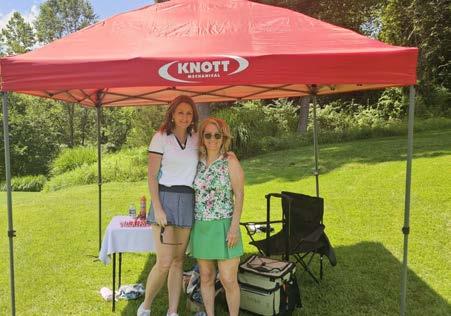

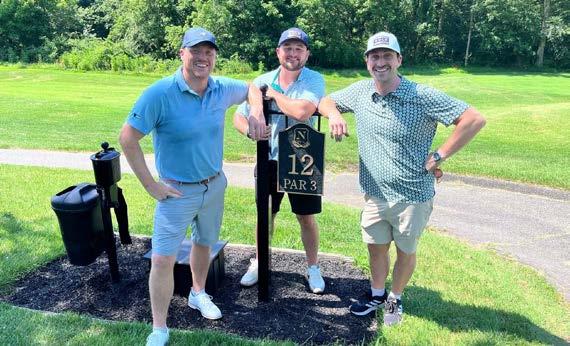
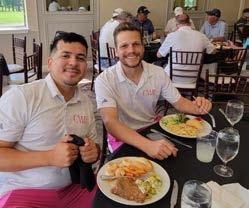


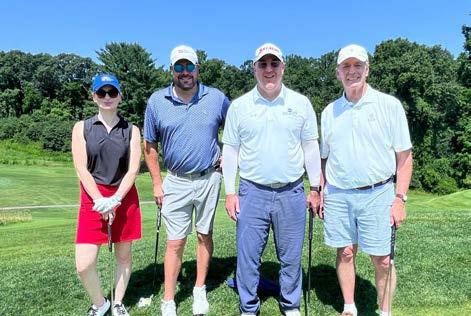
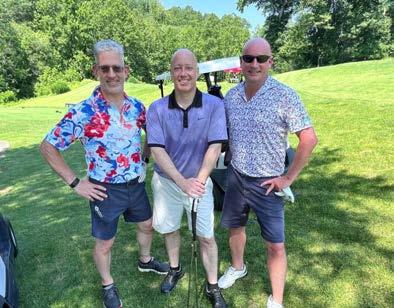
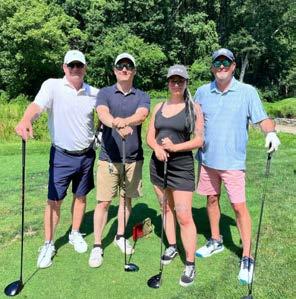

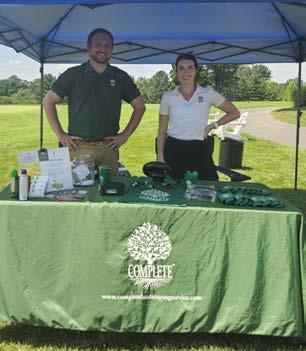




Park Heights Roofing is a family-owned roofing company based in Maryland, proudly serving both residential and commercial clients throughout Maryland and the surrounding states. Founded in 1999, we specialize in providing complete exterior solutions for homeowners and property management companies alike. Our comprehensive services include all types of roofing, siding, windows, brick repointing, insulation, and gutters.
THANK YOU FOR YOUR



The 2025 legislative session saw the passage of a number of bills that affect common ownership communities. I know our firm has received several questions about Senate Bill 758 titled – Condominiums and Homeowner Associations –Elections, Financial Statements, and Enforcement. So what does this bill do?
First the bill modifies who can assist and take care of the collection of ballots, the counting of ballots and who can conduct the election of the Board of Directors or officers for your community. The bill states that only “independent parties” can collect and count the ballots and conduct the elections. So who are “independent parties”? Independent parties are:
1. Persons who are not candidates in the election; and
2. Do not have a conflict of interest regarding any candidate in the election.
A unit owner or lot owner is considered an independent party if they are not a candidate in the election, they do not have a conflict of interest regarding any candidate in the election, they have not and is not electioneering for any candidate in the election and there isn’t an objection by more than 25% of the eligible voting members of the Association against the owner assisting with the election.
Property management companies are not considered independent parties under the bill unless the property management is owned by the association or a parent association. I like to think of this provision as allowing in-house management for the Association to assist with conducting the election, counting the ballots and collecting the ballots. Also if the association is part of a larger master association, the in-house management for the master association can also assist.
In this day and age where everything is electronic, your community can still retain a 3rd party vendor or conduct the election virtually. However, you need to ensure that the votes that are tallied by the 3rd party vendor or that they are sent to an independent party such as a volunteer unit owner
to tally the votes and not to your 3rd party management company if they are not in-house.
What this bill does not change is who can send out the notice of the annual meeting or special meeting where elections may take place. This bill also does not change who can send out the call for candidates or the proxies to the owners. However, it does modify who may collect those proxies as well as the counting of those proxies for purposes of the election.
It is not clear from the bill if the 3rd party management company can hold and maintain copies of the proxies, ballots, tally and election results after the election. We believe that as the custodian of the Association’s books and records, the Board can direct he management company to hold these documents as part of the books and records of the Association. You should also make sure that the management company is not hosting or operating the virtual platform such as Zoom if the election is being conducted virtually.
In addition to the changes regarding elections, the bill seeks to clarify that an association may not charge a lot owner for examining in person the financial statements of the association where the financial statements are maintained or for receiving the financial statements through electronic transmission. Meaning you cannot charge your time for pulling the financial statements to send to the unit or lot owner via email or other electronic transmission.
The law is ever changing and for better or for worse we have to change with the law. If you have any additional questions about how this new legislation will effect your community, do reach out to an attorney who is a member of CAI for additional guidance.
Written by: Nicole A. Williams, Esq. Rees Broome, P.C. nwilliams@reesbroome.com
Stop digging through bylaws and meeting minutes!
HOA Knowledge Helper’s AI chat interface finds the exact clause you need in seconds with source citations.
Empower boards, managers, and homeowners; slash email volume, and keep everyone on the same page with secure, multi-tenant cloud technology.
• AI answers in seconds via chat interface
• Searches your HOA’s bylaws, design rules, minutes
• Analytics dashboard for board insight
• Export chats to PDF/Word
• Easy onboarding, Microsoft Azure-secured tenancy





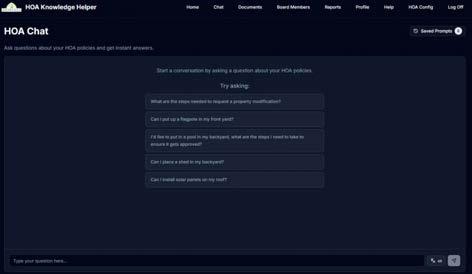


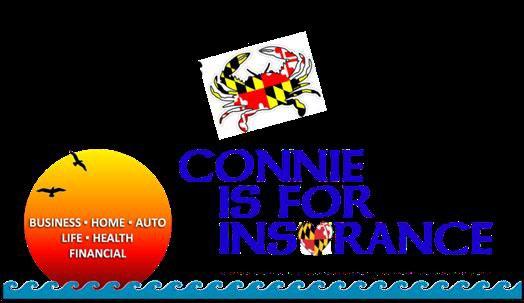

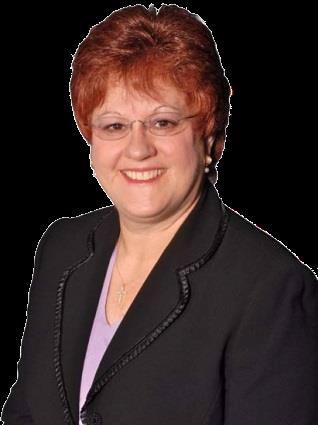
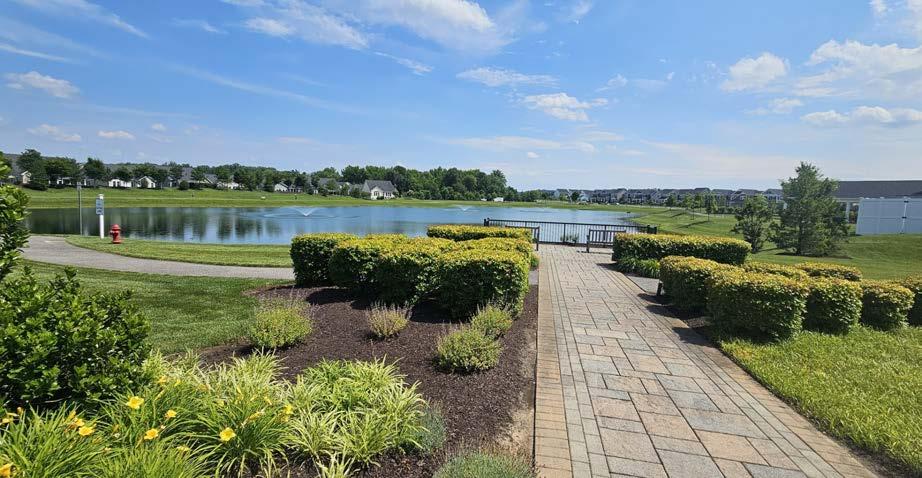
At the picturesque Two Rivers Clubhouse in Odenton, Maryland, the Chesapeake Regional Chapter of the Community Associations Institute (CAI) gathered for “The Truth About Online Voting”. This informative event, coordinated by Ariana L Beall, CMCA, AMS, PCAM, provided community association professionals, sponsors, and board members with essential education on the significant changes coming to Maryland’s election procedures under Senate Bill 758 (SB 758) in June.
Set to take effect on October 1, 2025, SB 758 introduces a critical shift in how elections are conducted within homeowner and condominium associations. The law mandates that a third-party provider must now conduct elections, therein eliminating the role previously held by the Board of Directors or management companies.
The seminar featured enlightening presentations by Staci M. Gelfound, CMCA, AMS, PCAM, and Cathi Sleight, CMCA, EBP, whose knowledge and practical insights helped unbox the legislation and outline a clear path forward for compliance. Attendees were guided through how state statutes and governing documents can serve as vital tools to ensure transparency, uphold the integrity of elections, and provide a strong framework to address any disputes that may arise.
With a focus on the transition from traditional paper ballots to secure electronic voting systems, the presentation maneuvered the shift that would not only comply with new legislative requirements but also has the potential to increase homeowner engagement and participation. The speakers shared real-world strategies and best practices for implementing online voting, all while maintaining legal and procedural safeguards.
The Chesapeake Region Chapter of CAI extends sincere gratitude to Two Rivers for their generous hospitality and support in hosting an event that successfully blended policy education, community connection, and an ideal backdrop for Happy Hour collaboration and networking among industry professionals, sponsors, and board members. Thanks are also due to Ariana L. Beall for her seamless coordination of the event and to Staci M. Gelfound and Cathi Sleight for their invaluable contributions.
As Maryland’s community associations prepare for the implementation of SB 758, the CAI Chesapeake Regional Chapter remains committed to providing the tools, education, and leadership needed to navigate this new legislative landscape with confidence and clarity.
Written by: Nicole Thompson, CMCA, AMS Senior Property Manager, Aspen Property Management nthompson@aspenpropertymgmt.com
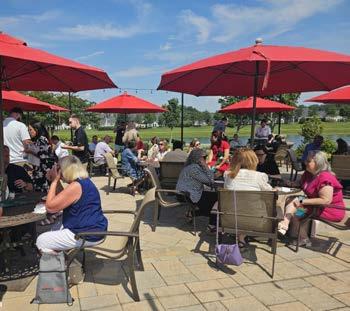
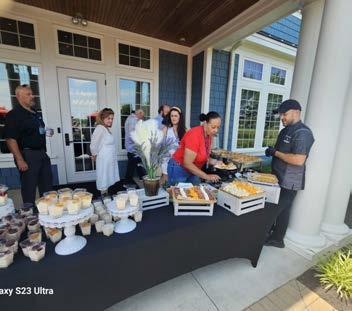
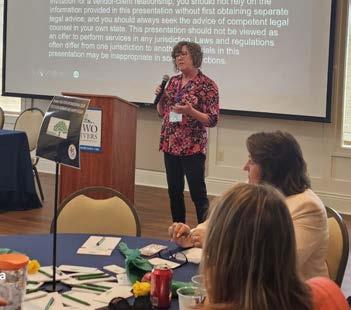
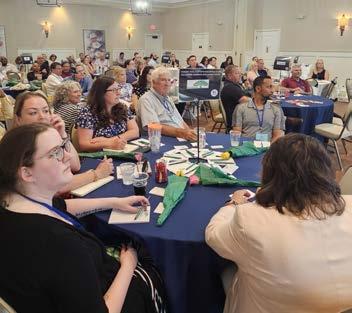
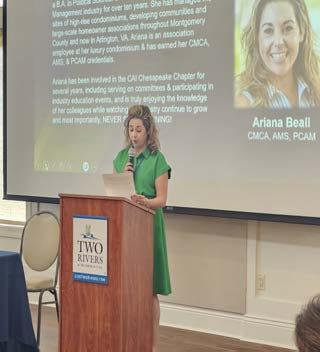


























































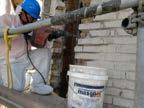





























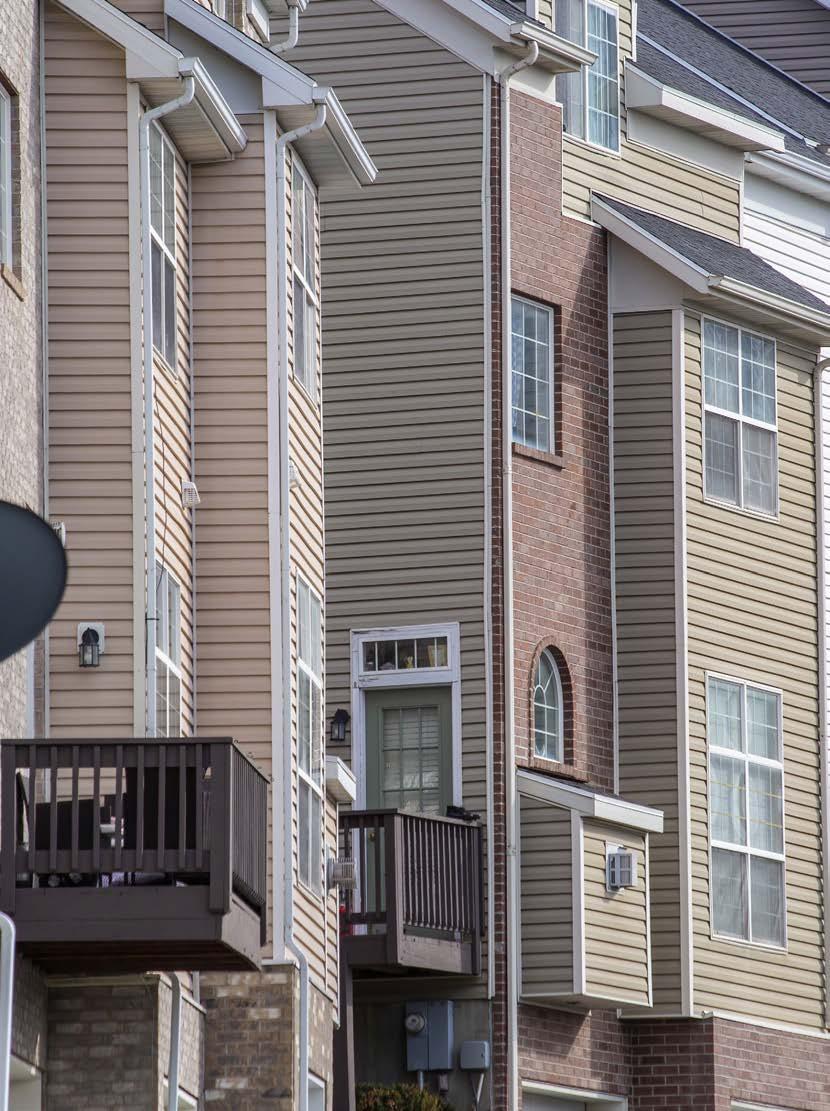
























































Many Thanks to our Sponsors!
Atlantic Maintenance Group
GetQuorum
Kolb Electric
Kris Konstruction Roofing Professionals
National Cooperative Bank
North Arundel Contracting
Prestige Tree Experts
PTG Enterprises, Inc.
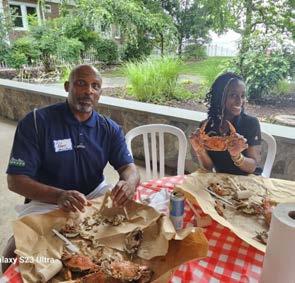
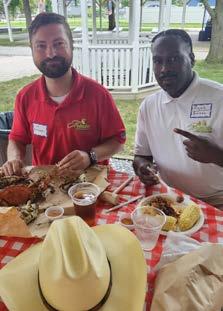

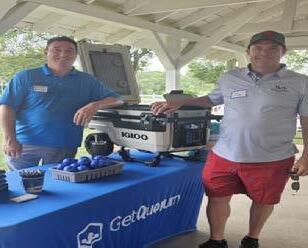
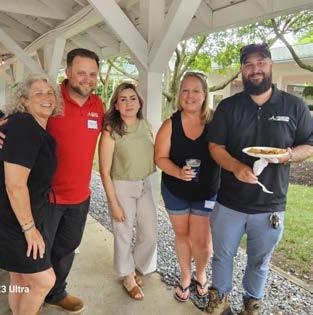
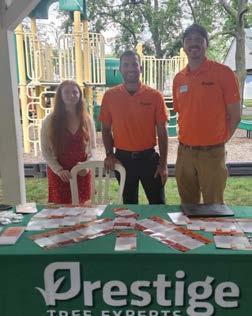
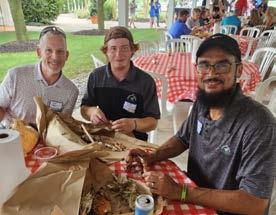
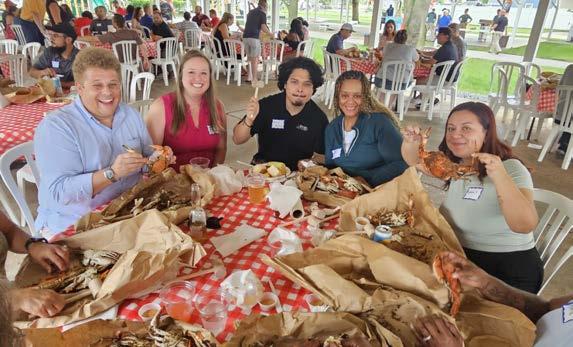
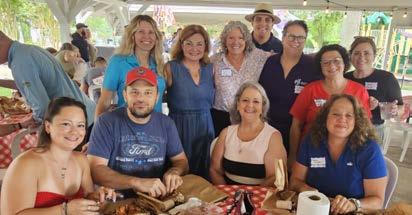
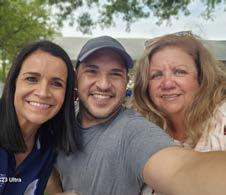
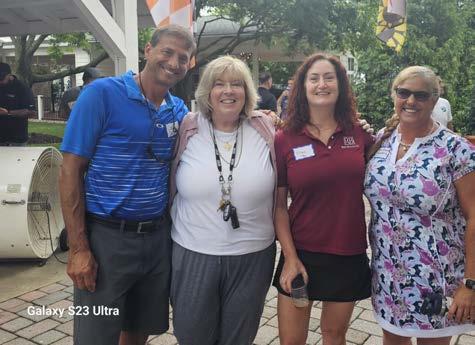
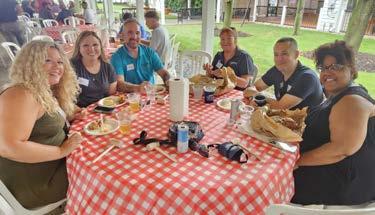
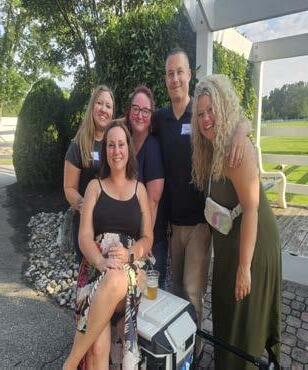
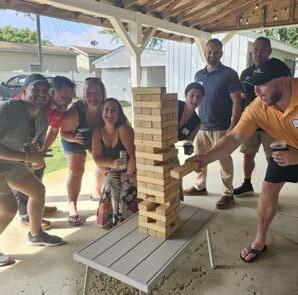

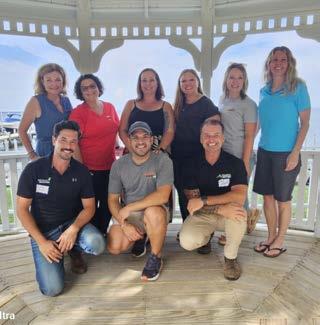
Many thanks to our Social Committee for putting this event together!”
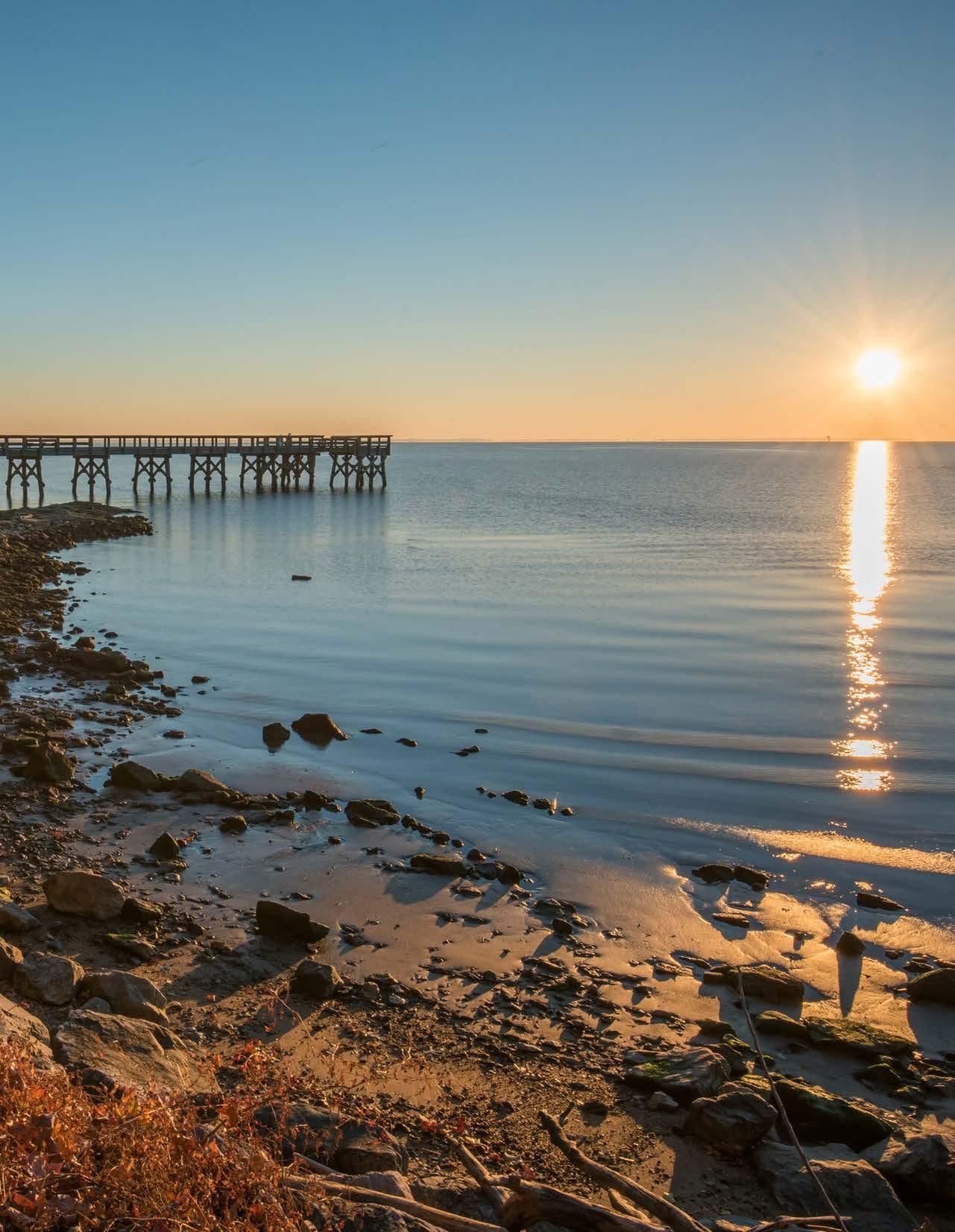

The cost of capital projects often gives community associations a pause. Sticker shock can dominate board conversations. But deferring action to avoid increases in assessments almost always backfires. Deferred capital improvements don’t go away; they get worse. And they become more expensive.
CAI emphasizes proactive planning and long-term asset management for good reasons: reactive associations spend more, frustrate residents, and increase their exposure to legal and safety risks.
Delaying capital projects can have serious consequences. Here’s what you risk when you opt to “wait and see”:
• Escalating repair costs - A $250,000 façade restoration can balloon to $500,000+ once structural damage sets in.
• Emergency replacements - A failing cooling tower or rooftop HVAC unit can force a same-day replacement at premium labor rates.
• Collateral damage - Leaky roofs ignored too long result in mold, damaged drywall, ruined flooring, and possibly insurance claims or lawsuits.
• Loss of vendor leverage - Rushed projects limit your ability to competitively bid and select vendors with the right scope and timelines.
These aren’t hypotheticals. Managers across all types of communities - High-Rise, Large-Scale HOA, and urban condominiums - have all experienced these consequences.
Associations that invest in preventative action reduce long-term costs and avoid panic decisions. Here’s what proactive management looks like:
• Reserve Study alignment - Follow CAI’s recommendation to update reserve studies every 3-5 years (Maryland requirement is 5 years) and incorporate findings into your annual budget process.
• Condition assessments - Schedule regular evaluations with engineers or contractors to assess systems (roof, paving, elevators, etc.) before signs of failure emerge.
• Project bundling - Planning in advance allows associations to bundle work (e.g., exterior painting and balcony restoration) and cut mobilization or access costs.
• Smarter borrowing - When you anticipate project timing, you can pursue low-rate loans or line-of-credit options, not scramble for financing during a crisis.
Managers must be ready to guide Boards beyond sticker shock. Equip them with:
• Comparative cost analyses - Show the cost of action now vs. deferred repair (include estimated escalation rates and risk factors).
• Visual evidence - Share photos from inspections, drone flyovers, or contractor walkthroughs to make deterioration real.
• Real examples - Share cases where delays led to special assessments, resident anger, or operational failures.
• Implementation plans - Break the project into phases or options. “We don’t need to do it all now, but here’s what we can’t afford to delay.”
Homeowner Board members play a key role in making proactive capital projects a reality. Your involvement and your support can make the difference between timely action and costly delays.
Here’s how you can help:
• Understand your Reserve Study
• Support your manager’s recommendations action to avoid pushbacks often exacerbates the problem.
• Communicating with homeowners Be transparent. Use newsletters, open
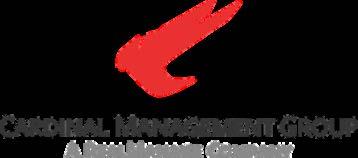










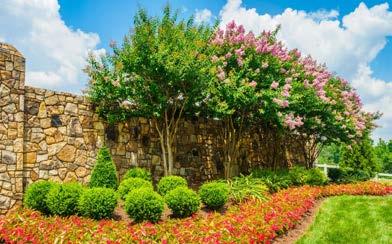
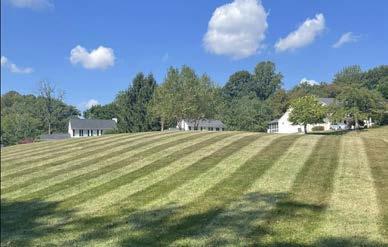
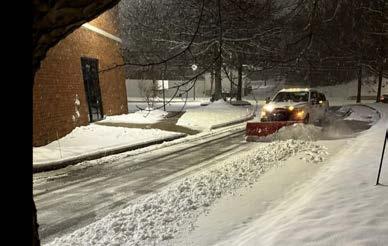
Every year on September 16, the United States observes National Working Parents Day, a special occasion dedicated to recognizing the immense contributions and sacrifices made by working parents. These individuals not only play a vital role in shaping the next generation but also serve as indispensable members of the workforce, balancing career demands with family responsibilities.

Working parents are the unsung heroes of everyday life. From early morning routines and school drop-offs to meetings, deadlines, dinner prep, and bedtime stories, their days are often stretched thin. Despite these challenges, they consistently strive to provide emotional, financial, and physical support to their families. National Working Parents Day is a reminder to acknowledge their hard work, dedication, and resilience.
The significance of this day extends beyond a simple thank you. It highlights the need for broader societal support for working families. Access to affordable childcare, flexible work schedules, paid parental leave, and remote work options are just a few of the policies that can dramatically improve the lives of working parents. Recognizing their struggles and successes should prompt conversations about workplace policies and societal norms that support work-life balance.
National Working Parents Day gives employers a chance to show appreciation for the parents in their workforce. Simple gestures—like sending a note of thanks, offering a longer lunch break, or organizing a family-friendly event— can go a long way in boosting morale and reinforcing a culture of empathy and understanding. Some companies take it a step further by implementing family-oriented workplace policies that benefit both employees and the organization.
For families, this day can be a moment to reflect and celebrate each other. Children can write cards, cook breakfast, or simply say thank you to show their appreciation. Spouses and partners might take over some responsibilities to give the working parent a break or plan a special evening to celebrate their hard work.
It’s also a time for working parents to pause and appreciate their own efforts. The dual roles they play are challenging, and taking pride in their accomplishments is important. This is a good day to slow down and do something you love. It can be as simple as taking 10 minutes to sip on some coffee in peace and quiet.
While one day may not be enough to fully capture the scope of what working parents do, National Working Parents Day serves as a valuable opportunity to spotlight their vital role in our lives and communities. It’s a call to gratitude, reflection, and action—thanking working parents for all they do while continuing to strive for a society that supports and uplifts them.
https://nationaltoday.com/working-parents-day/
Written by: Dani Bressler CAS, EBP
Toepfer Construction Co., Inc.
dbressler@toepferco.com
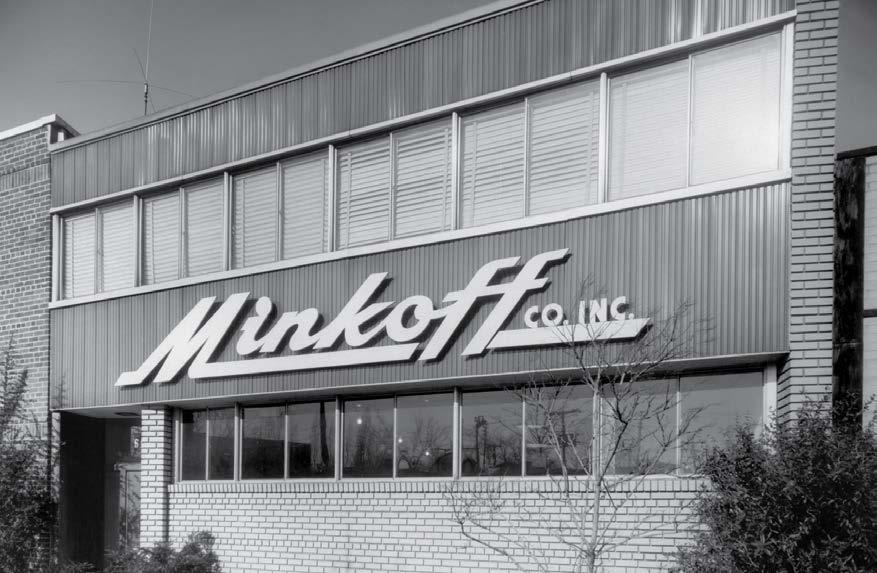
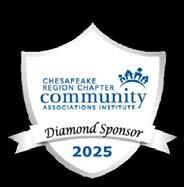
•M
•F
•
•
•M




As we continue our year-long celebration of our 45 years as a Chapter, in this issue we are publishing the profile of our 2011 past President, Kara Permisohn.
Thank you to Kara and so many others!

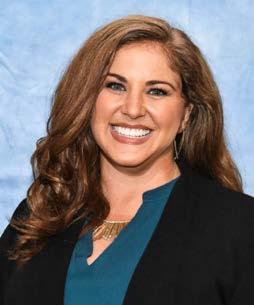
Kara Permisohn joined CAI as a business partner in 2004 when she began working for Minkoff Company, Inc. She volunteered on multiple Chesapeake Region Chapter (CRC) committees and was later elected for two terms on the Board of Directors 2008-2013. It was during 2011 that Kara led the Chapter as President. Kara recalled, Chesapeake was different in those years, although its character has remained “personal and friendly.”
The membership was smaller, meetings and events were in person, requiring much greater time and travel to participate. Board meetings were scheduled in business partners’ offices, management conference rooms, and after-Breakfast Seminars. Staff were technically only contracted thirty hours per week, but Kara noted they often worked exponentially more than they were paid for. She added that, “Camille Cimino, CED, was the driving force and glue of CRC, its activities, and fundraising.”
Kara summarized the challenges and successes during her Board terms as she planted several seeds to add value to the future of the chapter. The goal was to become a CAI-designated “Large Chapter”. Membership was slowly growing and exceeded that threshold. With such growth the need to integrate members in Delmarva was paramount. Now Delmarva has their own committees who host an Eastern Shore Expo, breakfast seminars, and a golf outing.
In 2009 Kara advocated for a “Partner Program” inviting Business Partners to become annual sponsors while boosting the chapter’s cashflow. This program continues to be a key benefit to both Partners and members. To encourage future leaders, the Board enacted meeting efficiencies and Committee guidelines.
Kara is especially pleased that charitable outreach efforts have been implemented more consistently at chapter programs. Today the Membership Outreach Committee is chartered with that task. Looking back, Kara is extremely proud of the Chesapeake Chapter’s momentum since her 2011 Presidency.
Written by: Cindy McKoin
Board President Potomac Ridge Condominium, Inc. Hagerstown MD
Homeowner member Chesapeake Chapter Board of Directors
....to all the volunteers who came out on Wednesday, August 13th to help with the Marley Glen School Clean-Up!
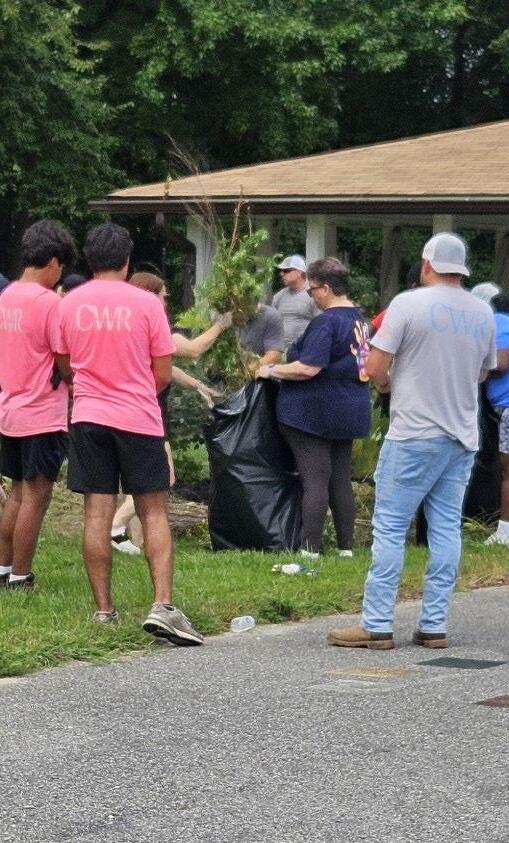
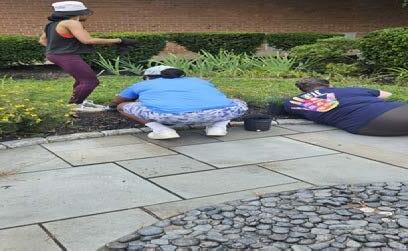
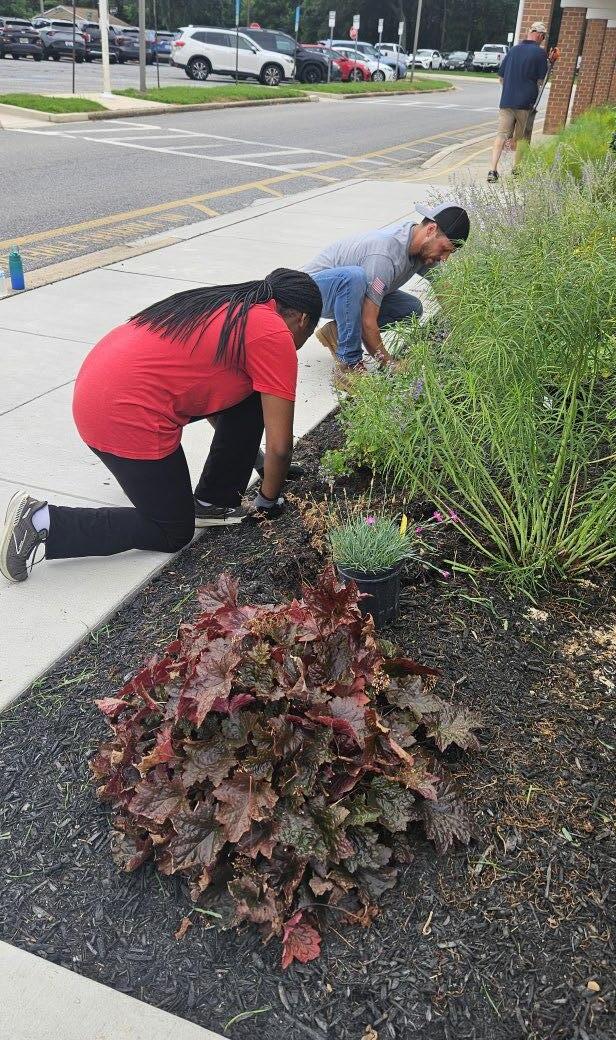
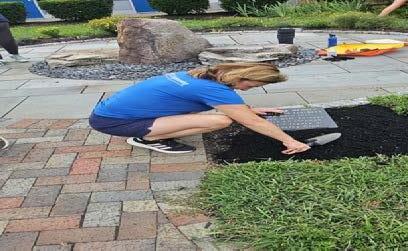
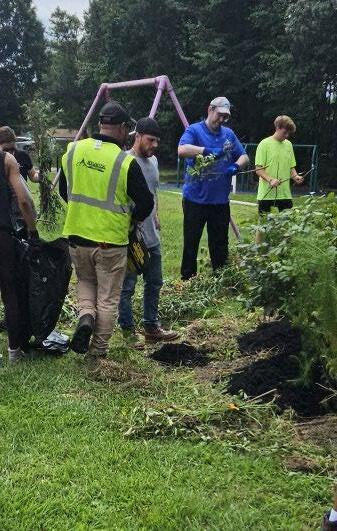
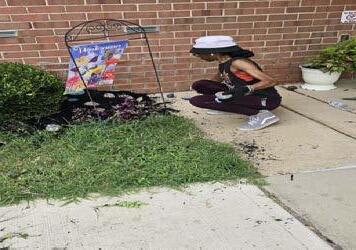
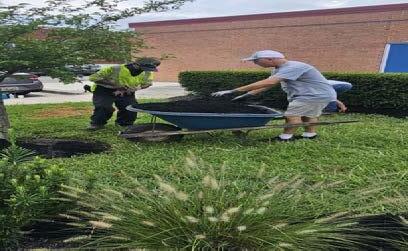
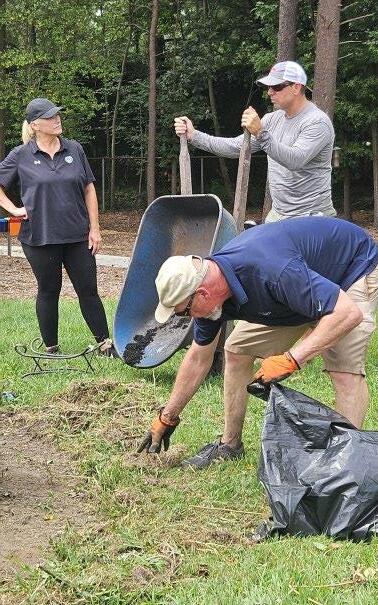

In today’s fast-paced digital landscape, technology often blurs the lines between urgency and importance, leading to constant connectivity and heightened expectations. This seminar delves into the nuances of managing digital communication, leveraging artificial intelligence (AI) responsibly, and fortifying cybersecurity measures to enhance productivity and protect sensitive information.
KEY GENERAL SESSION TOPICS:
Managing Digital Communication: Setting Realistic Expectations
Speakers: Stephan Kaganzev, CMCA, AMS, PCAM, FirstService Residential & Veronica A. Radalin, CMCA, AMS, Legum & Norman
Understanding and Preventing Data Breaches
Speakers: Melissa Esham, CMCA, AMS, PCAM, Deeley Insurance & Ellen Throop, Esq., Rees Broome, PC
Leveraging AI for Efficient Correspondence
Speakers: Chad Toms, Esq., WHITEFORD & Gail Windisch, CMCA, AMS, PCAM, Tidewater Property Management, Inc.
Enhancing Productivity with Technology Tools
Speakers: Jennifer Melson, CMCA, AMS, Premier Community Association Management & Michele Nadeau, CMCA, AMS, PCAM, Legum & Norman
LEGISLATIVE UPDATE SESSION:
Delaware & Maryland Update
Speakers: Chad Toms, Esq., WHITEFORD & Igor Conev, CMCA, AMS, PCAM, CIRMS, Mann Properties

Friday, November 14, 2025 8:00 am – 2:45 pm
Rehoboth Beach Convention Center
229 Rehoboth Ave • Rehoboth Beach, DE 19971
Join us for Happy Hour Thursday evening at Sirocco Food & Drink located at the Coast Rehoboth Beach! Tickets - $35
Guests may visit the link below to make their reservations for November 13, 2025 for Chesapeake Chapter CAI at Coast Rehoboth Beach, a Tapestry Collection by Hilton hotel. https://group.tapestrycollection.com/jcwoss
The group rate is $129/night for a standard room type. The group code for the room block is CHES. The cut-off date to book rooms is October 16, 2025. After that date the group rate is not guaranteed at the hotel.
This seminar is designed for professionals seeking to optimize their use of technology in communication and data management while safeguarding against cybersecurity threats. Early-bird registration is available! Don’ t miss out!

Thursday 1:00 pm – 3:00 pm Exhibitor Set-up 4:00 pm – 6:00 pm Happy Hour - at Sirocco Food & Drink Friday 6:30 am – 7:45 am Exhibitor Set-up





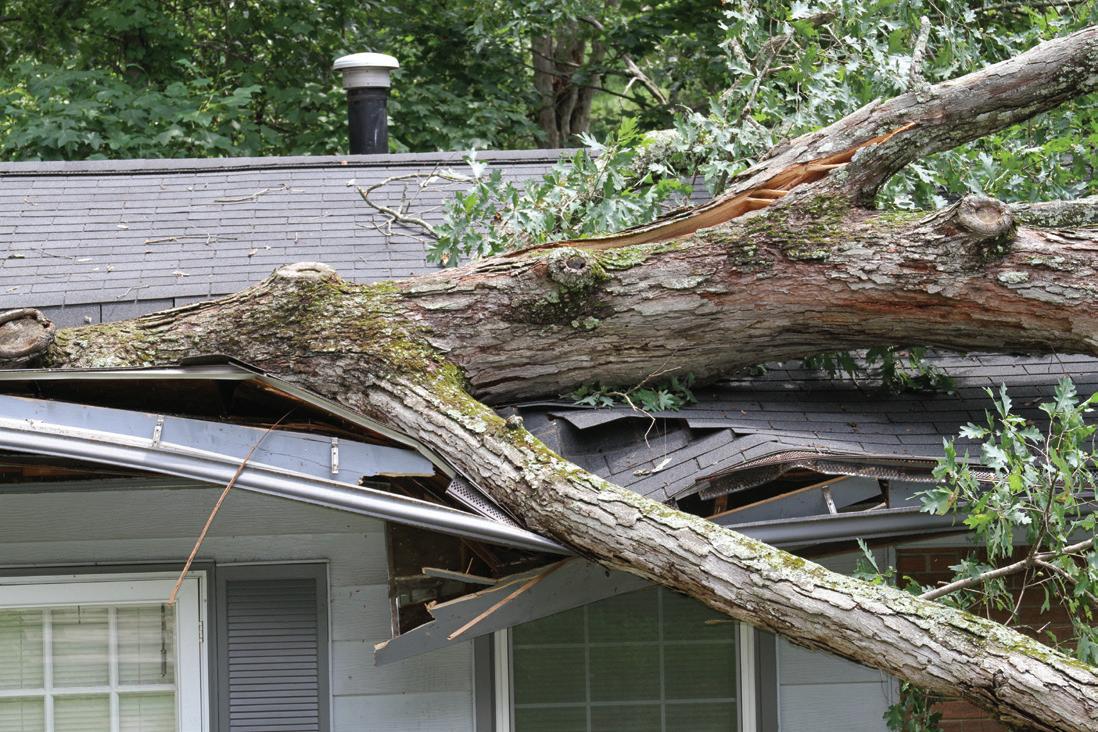
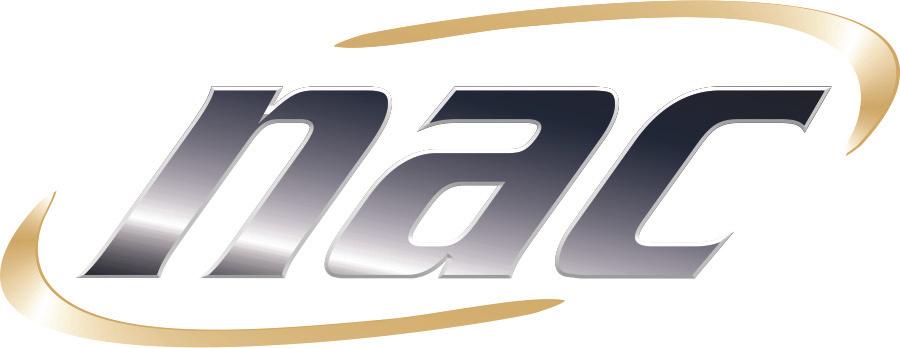
JANUARY
THURSDAY, JANUARY 16TH
CHARTING YOUR COURSE VIRTUAL
FEBRUARY
WEDNESDAY, FEBRUARY 19TH
BREAKFAST WEBINAR
MARCH
WEDNESDAY, MARCH 19TH
BREAKFAST SEMINAR
TEN OAKS BALLROOM, CLARKSVILLE, MD
FRIDAY, APRIL 11TH
DELMARVA BREAKFAST SEMINAR
PRINCESS ROYALE, OCEAN CITY, MD
MONDAY, MAY 5TH
DELMARVA GOLF OUTING
GLEN RIDDLE GOLF CLUB, BERLIN, MD
THURSDAY, MAY 15TH
HOMEOWNER WEBINAR
LEGALIZED MARIJUANA ISSUES
A “HIGH” PRIORITY FOR YOUR COMMUNITY
TUESDAY, JUNE 5TH
END-OF-YEAR CARNIVAL AT MARLEY GLEN SCHOOL GLEN BURNIE, MD
TUESDAY, JUNE 10TH
EDUCATIONAL SEMINAR & HAPPY HOUR THE VILLAGES AT TWO RIVERS CLUBHOUSE, ODENTON MD
MONDAY, JUNE 23RD GOLF OUTING
NORBECK COUNTRY CLUB, OLNEY, MD
THURSDAY, JUNE 26TH WEBINAR
“MARYLAND’S BUILDING ENERGY PERFORMANCE STANDARDS (BEPS)”
JULY
THURSDAY, JULY 10TH
CRAB FEAST
KURTZ’S BEACH, PASADENA, MD
AUGUST
WEDNESDAY, AUGUST 13TH
VOLUNTEER DAY
MARLEY GLEN SCHOOL, GLEN BURNIE, MD
WEDNESDAY, AUGUST 20TH
MANAGER HUDDLE VIRTUAL
OCTOBER
MONDAY, OCTOBER 6TH
ANNUAL SYMPOSIUM & EXPO
MARYLAND LIVE! CASINO & HOTEL, HANOVER, MD
WEDNESDAY, OCTOBER 15TH HOMEOWNER WEBINAR
NOVEMBER
THURSDAY – FRIDAY, NOVEMBER 13TH - 14TH
DELMARVA HAPPY HOUR & EXPO
REHOBOTH BEACH CONVENTION CENTER, REHOBOTH BEACH, DE
TBD
BOARD LEADERSHIP DEVELOPMENT WORKSHOP LOCATION TBD
DECEMBER
THURSDAY, DECEMBER 4TH
ANNUAL SOCIAL
ROLLING RIDGE GOLF CLUB, CATONSVILLE, MD
WEDNESDAY, DECEMBER 10TH
BREAKFAST SEMINAR & ANNUAL MEETING TEN OAKS BALLROOM, CLARKSVILLE, MD
CHAPTER BOARD AND COMMITTEE MEETINGS
Board of Directors First Wednesday at 9:00 am
Communications Committee Fourth Tuesday at 10:00 am
Delmarva Committee Third Wednesday at 9:00 am
Education Committee Second Thursday at 9:30 am
Expo Committee Third Tuesday at 9:30 am
Golf Committee Second Friday at 9:30 am
Legislative Committee Second Thursday at 4:00 pm
Magazine Committee First Thursday at 10:00 am
Membership Engagement Committee Third Tuesday at 3:00 pm
Social Committee Fourth Thursday at 10:00 am